
|
January 30, 2018
NTD Interview
|
|

|
January 16, 2018
CNN Interview - Part 1
|

|
January 16, 2018
CNN Interview - Part 2
|
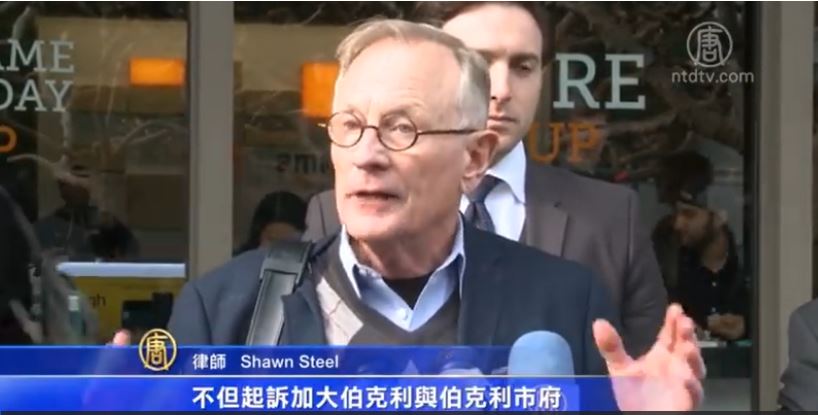
|
January 16, 2018
Press Conference
|
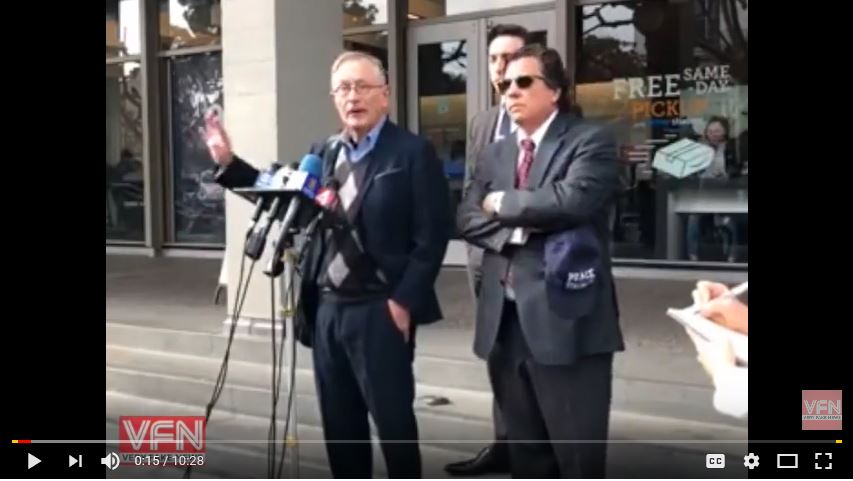
|
January 16, 2018
Press Conference
|

|
October 24, 2017
CNN Interview
|

|
October 18, 2017
CNN Interview
|
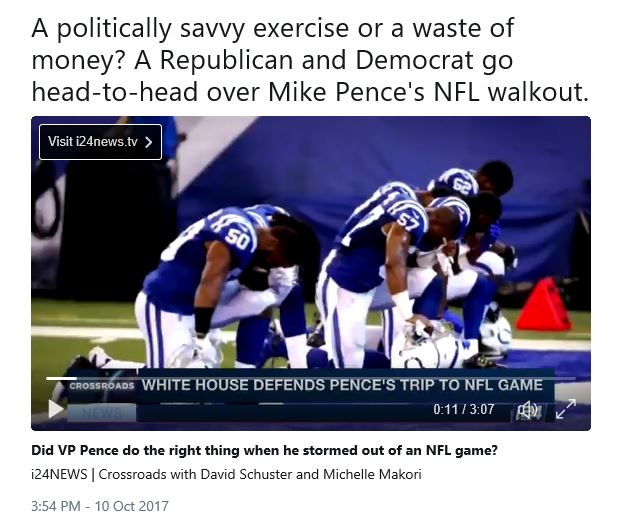
|
October 10, 2017
i24News Interview
|
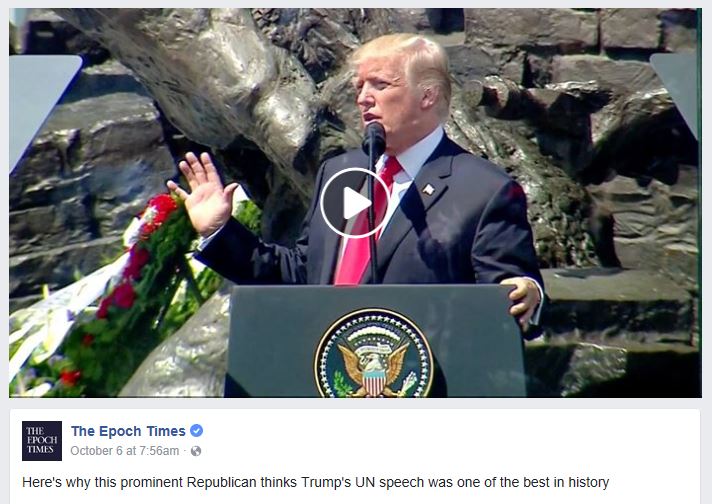
|
October 6, 2017
The Epoch Times Interview
|

|
September 27, 2017
RT America Interview
|
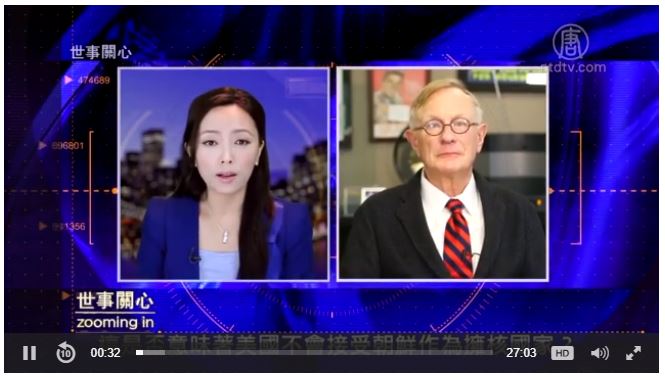
|
September 26, 2017
NTD Interview
|
|
|
|
|
|
|
|

Shawn Steel: California Republicans Must Think Like a Political Insurgency to Survive
December 07, 2018
California Republicans’ three-decade slide has reached a new low.
Democrats hold every statewide office, three-quarters of the state’s legislative seats, and 46 of the state’s 53 congressional seats. They’ve even seized the state’s last Republican stronghold. Once the most Republican county in America, Orange County no longer has a single Republican representative in Congress.
Beware calling the bottom too early.
“This is not high tide for Democrats yet,” predicts Paul Mitchell, a political data analyst who anticipates California Democrats will perform better with higher turnout in the presidential election.
There’s no question that Democrats played up the “Trump effect” to energize their base and generate hundreds of millions of dollars in campaign contributions from a national network of small-dollar donors. The President’s approval rating hovers around 39 percent in the home of the “Resistance.”
But hostility to Trump, though a contributing factor, does not explain the full scope of California Republicans’ problems.
Republicans who repudiated the President performed just as poorly as his biggest supporters. Last summer, State Assemblywoman Catharine Baker (R-Dublin), the Bay Area’s lone Republican representative, joined Democrats in co-authoring a state house resolution censuring President Trump. Ms. Baker campaigned on her pro-choice, pro-environment, and pro-gun control record. Yet, she met the same fate as her polar opposite, State Assemblyman Matthew Harper (R-Huntington Beach), an unabashed Trump supporter.
Ideology also doesn’t matter. Excluding Arnold Schwarzenegger’s ascension in the 2003 recall, moderate and conservative GOP gubernatorial candidates have languished between 38 and 42 percent of the vote. This year’s nominee, John Cox, who was endorsed by the president, matched Dan Lungren’s 38 percent in 1998. Four years ago, Republican Neel Kashkari, an Indian-American immigrant who supported same-sex marriage, abortion rights, and a path to legal status for undocumented immigrants, finished at 40 percent. In 2010, Meg Whitman spent $177 million, including $144 million of her own money, for 41 percent of the vote. Conservative Bill Simon did the best, hitting 42 percent in his failed 2002 bid.
California has been trending Democratic for a long time, which has spurred a vicious demographic cycle. Republican voter registration is down to 24 percent, falling behind decline-to-state voters. Millions of California Republicans have left the state. Since 2007, California has experienced a net domestic out-migration of a million citizens.
Republicans’ greatest disadvantage is in campaign funding. For all their talk of Citizens United, Democrats were awash in more than a billion dollars in campaign cash. Billionaire Tom Steyer put up $120 million for sophisticated campaign operations that carried out youth voter registration, voter contact, and get-out-the-vote efforts in targeted congressional seats. Former New York City Mayor Michael Bloomberg dealt the $100 million knockout punch with late spending that put many congressional Democrats over the top. In the closing weeks of the campaign, Bloomberg’s political action committee funded $9 million in last-minute attack ads against just two California Republican incumbents.
How should California Republicans move forward?
First, Republicans must acknowledge that traditional campaign tactics only work when two sides are evenly matched. We aren’t a political party in California. We are an insurgency. If we’re to survive, our tactics should reflect that reality.
Money: Republicans must develop an answer to Act Blue, the national fundraising conduit for progressive candidates. “Act Red” would create a national network of small donors to write $5, $10 and $20 checks to Republican candidates. We may never be able to match billionaires like Bloomberg or Steyer, but we can tap into the large number of hard-working families fearful of California’s decline.
Crowdsourcing: In addition to building a national small donor network, Republicans need to channel the power of the crowd to hold Democrat incumbents accountable. Shortly after the 2016 election, liberal “Resistance” groups directly confronted GOP members of Congress at their homes and offices to catch them in gaffes. Republicans should respond in kind. Crowdsourcing these campaign activities is a low-cost way to expose Democrat members of Congress on video.
Legal Activism: Republican lawyers need to engage in “lawfare,” the same legal activist technique that groups such as the American Civil Liberties Union (ACLU) have employed to radically undermine California’s porous voter integrity laws. Under the state’s “Motor Voter” program, for example, every person in California that interacts with the Department of Motor Vehicles is automatically registered to vote. Predictably, the program has come under fire for double registering as many as 77,000 people, including 1,500 ineligible voters. Republican lawyers could work with political campaigns to identify instances of illegal activities and, where appropriate, file state and federal lawsuits to challenge laws that encourage voter fraud.
Ballot Harvesting: Democrats recently changed state law to allow campaign operatives to go door-to-door collecting ballots. This “ballot harvesting” is especially effective in counties that mail ballots to every voter – whether they requested one or not. Republicans must develop and employ ballot harvesting of our own to boost turnout among low-propensity GOP voters.
Outnumbered in voter registration, outspent in campaign spending, and outmanned with union door-knockers, California Republicans have no time to waste.

California Democrats rewrite the voting rules in their favor
December 01, 2018
Election night was painful for California Republicans, but it was nothing compared to the slow torture we’ve endured ever since.
For three agonizing weeks, Republicans have watched registrars update their tallies with late absentee and provisional ballots. From Orange County to the Bay Area, it’s the same story playing out with different candidates: Democrats flipping seats with late ballots.
First, Mimi Walters. Then, Young Kim. Now, David Valadao.
It’s not unusual for late absentee and provisional ballots to break against Republicans. What is unusual is the scale of the carnage. As of this writing, Republicans lost election night leads for five members of Congress, three state Assembly races, two state Senate seats and a Board of Equalization candidate.
Even the Associated Press was caught off-guard by late ballot counting. It has called California’s 21st Congressional District for Republican incumbent David Valadao only to retract its decision three weeks later. If the independent organization “which sets the standard for calling races across the journalism industry” is getting races wrong, something’s changed in California.
Legislative Democrats have rewritten election rules in their favor to expand voter eligibility, automatically register every voter, eliminate voting integrity laws and encourage questionable campaign tactics, such as ballot harvesting.
California has entered an era of near universal suffrage with illegal immigrants, felons, inmates and minors registering to vote. San Francisco now allows “people in the country illegally and other noncitizens the right to vote in a local election,” according to the Associated Press. The city has spent at least $310,000 in tax dollars to register 49 non-citizens to vote.
State law grants voting rights to inmates in county jails as well as convicted criminals on probation, mandatory supervision, post-release community supervision, and federal supervised release. Just about the only criminals barred from voting in California are felons in prison or on parole. Even that standard is weakening. In 2015, 60,000 convicted felons officially regained their voting rights after the state refused to appeal a lower court decision that would have denied them the right to vote.
California has effectively adopted same-day voter registration with the introduction of “conditional voting.” This election cycle, voters who missed the 15-day voter registration deadline could request to cast a conditional ballot.
Under the state’s Motor Voter program, every person who interacts with the Department of Motor Vehicles is automatically registered to vote. This has predictably lead to tens of thousands cases of voter registration problems. The state’s Motor Voter program has come under fire for double registering as many as 77,000 people, including 1,500 ineligible voters.
This cycle also marked the beginning of California’s pre-voter registration program for 16- and 17-year-olds. Of course, if every voter is automatically registered through the Motor Voter program, why would anyone need to pre-register? Pre-registration is a thinly veiled effort to capture voters while they are young and more likely to identify as liberal Democrats. Of the nearly 89,000 minors that participated in the program, only 10 percent registered as Republicans.
Of course, expanding the electorate is only good if you can get those new voters to the polls. It’s hard to get voters to show up to the polls. That’s why Democrats have brought the polls to the voters. This election, five counties mailed absentee ballots to every voter — whether they requested one or not. In 2020, every county in California, except Los Angeles, will have that option. If the change was truly about empowering every voter, why disenfranchise 10 million inhabitants in the state’s most populous county?
It’s never been easier to vote by mail. Absentee ballots are counted if they arrive at the registrar of voters three days after Election Day. If ballots are sent to the wrong county, the ballot is valid for an additional four days.
Most troubling of all, California has eliminated voting integrity laws that protect voters from campaign intimidation. In 2016, state lawmakers eliminated the ballot protection law that enabled only a trusted family member to return another voter’s ballot.
Assembly Bill 1921 now allows anyone to return an absentee ballot. The law has encouraged campaign operatives to engage in coercive tactics.
“How could someone come to my door and so brazenly ask me to hand over my ballot?” asked John Lieberman, a Democratic voter in Los Angeles, after an intimidation incident during a 2017 special election campaign. “What I experienced from her campaign sends chills down my spine.”
For good or bad, all of these changes are law, and California Republicans are absolutely powerless to reverse course. Our party can either eat sour grapes or adopt new campaign tactics to account for these changes.

The Rush Limbaugh Show
November 30, 2018


California’s late votes broke big for Democrats. Here’s why GOP was surprised
November 30, 2018
by John Wildermuth and Tal Kopan
California Democrats took advantage of seemingly minor changes in a 2016 law to score their stunningly successful midterm election results, providing a target for GOP unhappiness that is tinged with a bit of admiration.
Some Republicans have cast a skeptical eye on Democrats’ use of “ballot harvesting” to boost their support. The idea’s backers say it’s just one of several steps California has taken to enable more people to vote.
Few people noticed when Gov. Jerry Brown signed the changes in AB1921 into law two years ago. In the past, California allowed only relatives or people living in the same household to drop off mail ballots for another voter. The new law allowed anyone, even a paid political campaign worker, to collect and return ballots — “harvesting” them, in political slang.
The change was strictly a public service, said Assemblywoman Lorena Gonzalez, D-San Diego, author of the bill. The old rules, she said, “simply provide yet another obstacle for individuals attempting to vote.”
Republicans didn’t agree, and the measure passed the Legislature on a largely party-line vote.
They felt the hit on Nov. 6 — and in the days after, as late-arriving Democratic votes were tabulated and one Republican candidate after another saw leads shrink and then evaporate. This week, a seventh GOP-held congressional seat flipped to the Democrats, leaving Republicans controlling a mere seven of California’s 53 House districts.
In Orange County alone, where every House seat went Democratic, “the number of Election Day vote-by-mail dropoffs was unprecedented — over 250,000,” Fred Whitaker, chairman of the county Republican Party, said in a note to supporters. “This is a direct result of ballot harvesting allowed under California law for the first time. That directly caused the switch from being ahead on election night to losing two weeks later.”
Some national Republicans expressed befuddlement with what was happening to their party in California. In an interview with the Washington Post, House Speaker Paul Ryan of Wisconsin called California’s election system “really bizarre” and said he couldn’t even begin to understand what ballot harvesting is.
“We were only down 26 seats (nationally) the night of the election and three weeks later, we lost basically every California race,” he said. “Point being, when you have candidates that win the absentee ballot vote, win the day of the vote, and then lose three weeks later because of provisionals, that’s really bizarre.”
However, this was no spur-of-the-moment effort by the Democrats, said Shawn Steel, the California GOP’s delegate to the Republican National Committee.
“This was not done at the last minute,” he said. “It started the day after Jerry signed” the bill.
Rep. Jeff Denham of Turlock (Stanislaus County), one of the House Republicans who saw victory slowly turn to defeat after election day, agreed with Ryan Thursday that California’s count should go more quickly. “Counting ballots two weeks after the vote is something that Californians shouldn’t have to put up with,” he said.
But in an earlier interview after it was clear he’d lost, Denham said the GOP had been slow to adapt to changes in California’s election system.
“One of the lessons that the GOP needs to learn out of this election cycle is how to work within all of the new rules, same-day voter registration, motor voters,” Denham said. “There have been a lot of changes in laws that I think have caught many in the Republican Party by surprise. You can’t just run a traditional campaign as you did before.”
He added, “If one party’s harvesting ballots, both parties need to do it.”
Across the state there were reports of groups collecting ballots and dropping them off at polling places and election offices.
“We certainly had that going on here, with people dropping off maybe 100 or 200 ballots,” said Neal Kelley, Orange County’s registrar of voters. “We also had voters calling and asking if it was legitimate for someone to come to their door and ask if they could take their ballot” and deliver it to the polls.
For Democrats, the ballot harvesting was all part of a greater effort to get out the vote from their supporters, particularly from occasional voters.
“We beat Republicans on the ground, fair and square,” said Katie Merrill, a Democratic consultant deeply involved in November campaigns. “Many of the field plans included (ballot harvesting) as an option to deliver voters or their ballots” to the polls.
Those efforts involved identifying voters who might support Democratic candidates and ignoring those who wouldn’t.
In one Orange County household, for example, both the husband and wife were longtime Republicans, said Dale Neugebauer, a veteran Republican consultant. Democratic volunteers came by the house four times, each time asking to speak only with their 18-year-old daughter, a no-party-preference voter, and asking if she wanted them to pick up her signed and completed ballot.
That’s a perfect example of the “thorough and disciplined” ground game the Democrats used, said Merrill.
“We were not wasting time talking to people who weren’t going to vote for Democrats,” she said.
Many of those harvested ballots arrived in the waning days of the election, adding to the flood of votes that couldn’t be counted on election day. And those late ballots broke heavily for the Democrats.
“Absolutely, ballot harvesting played a very significant role,” said Neugebauer, who worked most recently for Orange County Rep. Dana Rohrabacher, another Republican who lost his seat. Democrats had “a huge advantage by executing a plan to gather ballots from voters.”
“I have a little bit of professional admiration for how well the Democrats executed their plan,” Neugebauer admitted.
While the late vote tally typically favors Democrats, the partisan advantage this year was staggering.
In the Central Valley’s 10th Congressional District, for example, Denham led Democrat Josh Harder by 1,287 votes the morning after the election. As of Thursday, with almost all of the late ballots counted, Harder was ahead by 7,416 votes.
In Orange County, Republican Rep. Mimi Walters of Irvine saw her 6,074-vote lead over Democrat Katie Porter turn into an 11,866-vote deficit.
Speaker Ryan was among the Republicans who couldn’t explain what happened.
“When you win the absentee ballots and you win the in-person vote, where I come from, you win the election,” Ryan said. “I’m not saying there’s anything nefarious about it, because I just don’t know, but we believed we were up about six seats in California the night of the election, now I think we lost just about every single one of those.”
For Democrats, Ryan’s comments were little more than sour grapes from a GOP leader who is retiring after his party was mauled in the midterms.
“Unlike other places in the country, in California we believe in actually counting every vote,” said Rep. Pete Aguilar, D-Redlands (San Bernardino County). “That is sometimes confounding to some of my colleagues, but I think that’s what’s at play here.”
Badly outnumbered in the Legislature, California Republicans have no hope of undoing the new rules. Instead, they’re going to have to adapt.
“The Democrats are creating a new, highly efficient tool to turn out voters,” said Neugebauer, the GOP consultant. “If Republicans can’t find a way to match it, we’re going to lose more elections all over the country.”

Questions about stolen elections not going away in California...
November 30, 2018
By Monica Showalter Once again, this happened: TJ Cox defeated three-term Republican Rep. David Valadao on Wednesday, giving Democrats a gain of seven House seats in California and 40 nationwide – the party's strongest midterm showing since the Watergate era in the mid-1970s. Cox clinched his victory more than three weeks after election day, when updated results from Fresno and Kings counties pushed his lead over Valadao to 529 votes. The contest was the country's last remaining undecided congressional contest. Cox, 55, trailed the GOP lawmaker by nearly 4,400 votes on election night but steadily gained ground as mail-in and other ballots tipped his way. That follows the obvious funny stuff that went with the sudden surge of "found" ballots that got Republican congressional candidate Young Kim displaced from her congressional victory to Democratic Party machine pol Gil Cisneros. Both Kim and Valadao were terrific Republicans who had big leads on election night and, in both cases, had the elections actually called for them until...all these found ballots got found, and the counting went on and on and on until the Democrat won. Even outgoing House speaker Rep. Paul Ryan, the nambiest-pambiest of all Republicans, pretty well admitted there was a problem. According to Carla Marinucci of Politico: "We were only down 26 seats the night of the election and three weeks later, we lost basically every California race,'' Ryan said Thursday. "This election system they have – I can't begin to understand what 'ballot harvesting' is." Seriously, isn't it all just the wildest of coincidences? Even more coincidental, all the voting went one way: to the Democrats. A powerful op-ed by California Republican National Committee leader Shawn Steel pretty well lays out what happened, why the Democrats could scarf up all but a few of California's congressional seats, even though they came in districts that were always traditionally Republican, leaving California with almost zero Republican representation whatever in what has become a Stalinist one-party state monopoly with no competition and a revolutionary left-wing agenda. He sums it up in the SEO as follows: "No one needs voter fraud when all the rules are changed." He points out that creepy practices such as "ballot harvesting" (where Democratic operatives gather mail-in ballots and oh, so helpfully turn them in), which is illegal in most states, and California's bad Department of Motor Vehicle registrations, loaded with errors, had a lot to do with it. He also points to youth "pre-registration" voting sign-ups, even though kids get registered whether they like it or not at the DMV; felons getting their crimes downgraded to misdemeanors so as to get to vote from jail; illegal aliens voting – studies show it was a lot of them; and involuntary mail ballots (I get those, and I most certainly didn't ask for them) mean lots of paper ballots lying around from people who may not want to vote or don't live here, sitting in mailboxes – that somehow get filled in and turned in. It really is a corrupted process, and not surprisingly, Democrats are the sole beneficiaries while the state's many traditional Republicans are shut out and get nothing. Most disgusting of all is California secretary of state Alex Padilla's snide insistence that the voting process is all clean, and the spectacle of all people wanting to vote socialist (just like the Stalin days in Russia), far from being strange, is what "we call democracy." Leon Trotsky could not have said it better. It's not surprising he talks like that. It is, after all, his show. He's one of the officials who refused to cooperate with President Trump's electoral integrity commission on fraudulent voting, something that eventually had to be shut down. With him yelling "democracy," all we can wonder now is what he is hiding.

Blue State Blues: Democrats Stole the Election in California — Legally, Through ‘Ballot Harvesting’
November 30, 2018
by Joel B. Pollak California Democrats “stole” the midterm election using a new method that is illegal elsewhere but completely legal in the Golden State: a practice called “ballot harvesting,” which allows third parties to submit mail-in ballots for voters. It sounds “bizarre,” as outgoing Speaker of the House Paul Ryan (R-WI) described it to the Washington Post on Thursday — but it is absolutely true: Democratic operatives handed in pile after pile of other people’s ballots. And Demorats are proud of it, mocking Republicans for failing to take advantage of a new law signed by Governor Jerry Brown in 2016, over GOP objections, that allows “ballot harvesting,” and which some Republicans are now blaming for their defeat. The practice explains several mysteries about the 2018 election, such as: why mail-in ballots caused massive shifts toward Democrats in races Republicans thought they won on Election Night; why Republicans won the turnout battle in the primary, but lost it in the general election; and why Democrats with party backing defeated fellow Democrats without it — even when the latter had more money. “Ballot harvesting” by Democratic Party operatives — a surprise tactic they likely saved for the general election — appears to have made the difference. The San Francisco Chronicle reported Thursday that Democrats ran a disciplined, door-to-door campaign offering to deliver voters’ ballots to the polls:
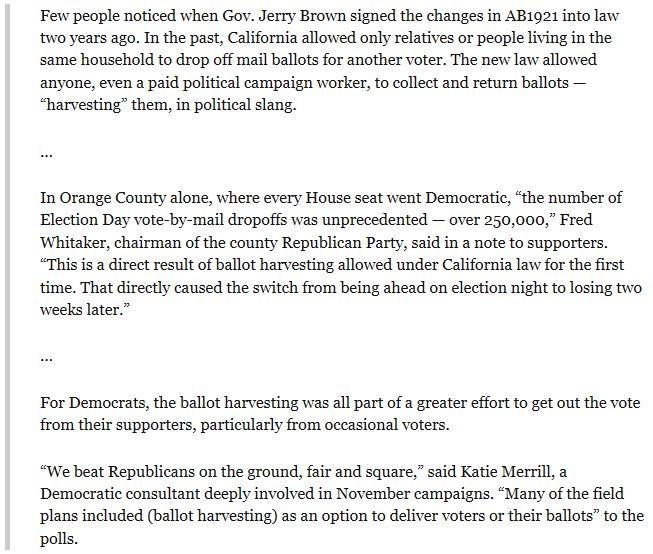
Republicans, in contrast, simply focused on traditional turnout operations — and lost badly. In the days after the election, some Republicans speculated that there had been “voter fraud” in the state. And, true, Los Angeles County prosecutors busted a ring that bribed the homeless to register fraudulently. The Department of Motor Vehicles also registered 1,500 ineligible voters. Yet “ballot harvesting” likely had a bigger effect. Democrat Secretary of State Alex Padilla mocked Republican concerns, telling Politico: “What they call strange and bizarre, we call democracy.” But it is democracy as practiced almost nowhere else in the world — except for one-party banana republics in failed third-world states, where the sight of ruling party apparatchiks dropping off bundles of ballots is not unusual. Eric Eggers, author of Fraud: How the Left Plans to Steal the Next Election, told Breitbart News Tonight on Thursday that “ballot harvesting” also creates opportunities for coercion and bribery. Nevertheless, it is legal. And as Shawn Steel, the California committeeman for the Republican National Committee (RNC), wrote on Wednesday, it is not necessary for Democrats to break the law when fraud has effectively been legalized, through “ballot harvesting” and other methods. “Merciless and unsparing, California Democrats have systematically undermined California’s already-weak voter protection laws to guarantee permanent one-party rule,” he said. But as Democrats point out, there is no reason that Republicans cannot use the same methods in California. So Republicans should take them up on it. There is no alternative. RNC chair Ronna McDaniel patted herself on the back after the election, and President Donald Trump endorsed her for re-election on Thursday. But she lost the House. If she hopes to succeed in 2020, she had better learn to steal elections legally — just like the Democrats do.

Paul Ryan Is Right: California's Election Laws Are Vulnerable To Fraud
November 30, 2018
By Bre Payton Outgoing House Speaker Rep. Paul Ryan (R-Wisconsin) made headlines Thursday morning when he said GOP losses in the state of California were suspicious at a Washington Post Live event. “California just defies logic to me,” Ryan said about the Golden State’s election results. “We were only down 26 seats the night of the election, and three weeks later, we lost basically every California contested race. This election system they have — I can’t begin to understand what ‘ballot harvesting’ is.” “Do you think there’s something wrong with it?” WaPo’s Paul Kane asked. “No, I just think it’s weird,” Ryan replied. In response, California’s secretary of state, Alex Padilla condemned Ryan’s remarks and defended California’s election laws.
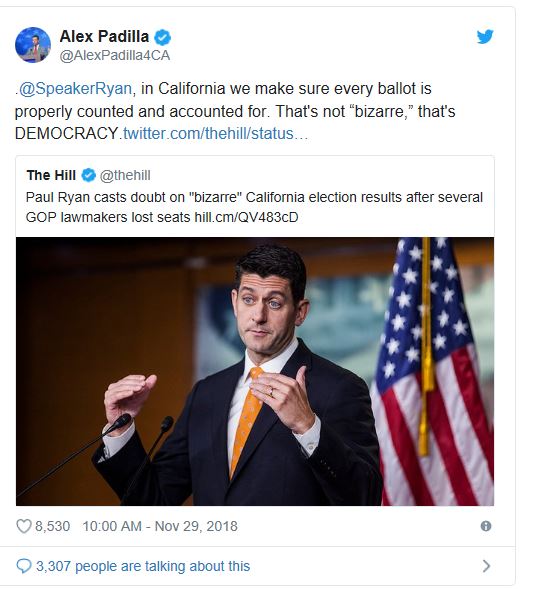
Ryan isn’t the only Republican to scratch his head over this. Six Republican candidates were leading in congressional races across California on Election Night, only to see the results flip to Democratic victories weeks later due to California’s lax election laws. In California’s 39th Congressional District, Republican candidate Young Kim was widely anticipated to snag an electoral victory and fill outgoing Rep. Ed Royce’s shoes, becoming the first Korean-American woman to serve in Congress. On election night and the next day, she held a wide lead ahead of Democrat Gil Cisneros. While waiting for the official ballot tally, Kim flew to Washington D.C. to attend orientation events for freshmen members of Congress, including the class photo op, but as ballots continued to pour in up to a week after the election, the results flipped and she ultimately lost.
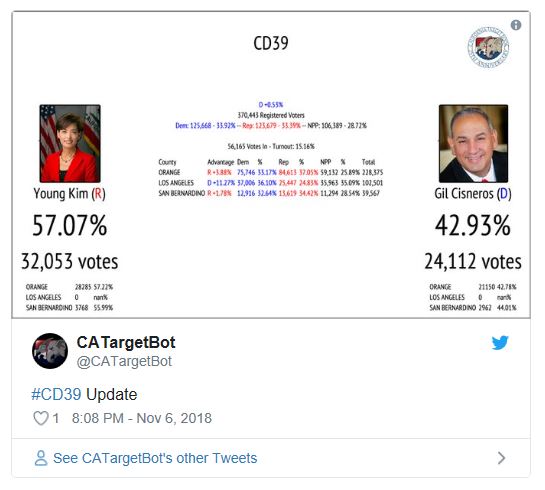
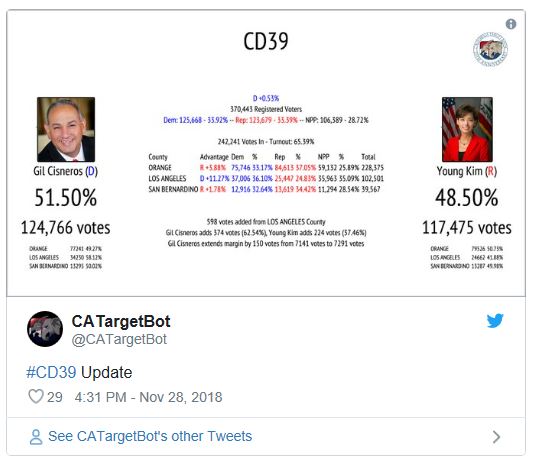
California’s Wacky Election Laws, Explained
Watching every single contested congressional race flip from Republican to Democrat days after the election is, as Ryan put it, weird. While Here are six reasons California’s electoral system is deeply flawed. 1. The DMV automatically registers people to vote, even illegal immigrants. Virtually everyone who interacts with the state’s DMV gets automatically registered to vote under California’s Motor Voter program, but this program is riddled with errors and has even registered illegal immigrants. In September, the Los Angeles Times reported that 23,000 voters were registered incorrectly by the DMV. Less than a month before the election, DMV officials revealed that an additional 1,500 people were registered to vote when they should not have been, including some illegal residents, minors too young to vote, and felons who were supposed to be ineligible. 2. ‘Ballot Harvesting’ allows political operatives to drop off other people’s ballots. A new state law allows third parties to pick up ballots and drop them off at polling locations on behalf of that person, a practice known as “ballot harvesting.” In video footage that surfaced last month, a woman who identifies herself to a California resident as Lulu is seen knocking on someone’s door and offering to deliver their absentee ballot, but “only to, like, people who are supporting the Democratic Party.” In an e-mail to supporters, Orange County GOP chair Fred Whitaker attributed the party’s losses in longtime Republican districts to ballot harvesting, the San Fransisco Chronicle reported.

In his remarks Thursday, Ryan singled out this practice as a contributing factor to the GOP losses, saying they were confusing and bizarre. Watching the woman in the aforementioned video say she’s collecting ballots but only for Democratic voters is definitely odd and emphasizes how those picking up the ballots have an incentive to mess with them. What would a ballot collector working on behalf of a liberal group do to a ballot cast by someone who answered the door wearing a “Make America Great Again” hat? Would that ballot actually get taken to the polls, or tossed in the trash? And what about low-information voters who hadn’t been planning to cast a ballot? If someone showed up at their door asking for their ballot, would they feel obligated to quickly fill it out and give it to them? There seems to be very little benefit for the actual voter (I mean, how hard is it to drop a filled-out ballot in one’s mailbox on election day?) and a huge incentive for the “harvester” to act shady. 3. California allows voters to register to vote and cast a ballot on Election Day.
That’s right. On Election Day, one can show up to a polling location and register to vote and cast a ballot all on the same day by taking advantage of the Conditional Voter Registration process, which is explained in this YouTube video featuring millennials with pastel-colored hair who could not get it together and register to vote on time like the rest of us. 4. Voters can cast a ballot at the “wrong” polling place. California allows provisional ballots, which are essentially regular ballots that get put into a special envelope before they’re stuffed into the box. These are for people who show up at the “wrong” polling location or who changed their mind about voting by mail but want to vote anyway, according to California’s Secretary of State website. These ballots are then supposed to be checked against other rolls to make sure the person did not vote twice, but there are reasons to doubt the state’s ability to properly execute this. 5. Counties are allowed to mail absentee ballots to every voter in the county.
“This election, every voter in Madera, Napa, Nevada, Sacramento and San Mateo counties received an absentee ballot — whether they requested one or not,” Shawn Steel writes for The Washington Times. “Beginning in 2020, every county in California except one will be allowed to follow suit.” 6. Absentee ballots that arrive a week later will still be counted. Unlike most other states, absentee ballots cast in California do not need to be delivered by Election Day, but merely postmarked on that day. This means absentee ballots can come pouring in up to a week later and alter the outcome of the election. While a number of these programs and laws certainly make it more convenient for voters, they also create a nightmare scenario for quick election results tallying and a number of vulnerabilities in the integrity of the electoral system. Mailing a ballot to every voter in the county, allowing these ballots to arrive up to a week after Election Day, and allowing individuals to register to vote and cast a ballot on the day of an election give ample opportunity for an individual intent on committing voter fraud to do so. California needs to rethink its program that has enabled an unknown number of illegal immigrants and minors to be improperly registered to vote. It needs to tighten deadlines on voters in order to get a quicker count that doesn’t take weeks to tabulate. Fortunately, there haven’t been reports of widespread fraud that would necessitate drastic measures to ensure the results were legitimate. But after the debacle in Florida, watching every single contested congressional race flip from red to blue weeks later is not a good look. California’s legislature and secretary of state need to take Republican concerns about election integrity seriously.

GOP cries foul after California thumping
November 29, 2018
"What they call strange and bizarre, we call democracy," says the Democrat who oversees the state’s elections.
By CARLA MARINUCCI
SAN FRANCISCO — A growing chorus of Republicans are casting doubts about the integrity of the voting system in California, where the party lost at least six House seats in the midterm election — including a handful where the GOP at first appeared to have emerged victorious on election night.
A sentiment that began as a murmur among hard-line conservatives jumped to the Republican mainstream Thursday when House Speaker Paul Ryan suggested that the state’s “bizarre” voting system “just defies logic to me,” and may have contributed to the GOP’s historic thumping in California.
"We were only down 26 seats the night of the election and three weeks later, we lost basically every California race,’’ Ryan said Thursday. “This election system they have — I can’t begin to understand what ‘ballot harvesting’ is.”
In part due to mail-in and provisional ballots that delivered the margin of victory to Democratic challengers in a handful of seats, California’s Republican delegation appears to have been slashed in half — in the new Congress, Republicans are likely to hold just seven of the state’s 53 House seats, the party’s lowest number since the 1940’s.
Ryan’s statements drew a sharp rebuke from California Secretary of State Alex Padilla, who said Thursday that “it is bizarre that Paul Ryan cannot grasp basic voting rights protections.”
Padilla, a Democrat who oversees the elections process in a state with 19 million registered voters, told POLITICO that “our elections in California are structured so that every eligible citizen can easily register, and every registered voter can easily cast their ballot.”
That concept, he said, “[might be] strange for Speaker Ryan, who comes from Wisconsin,’’ but Padilla added, “I’m happy to walk him through the bottom line.”
Ryan’s comments about a state’s elections process put him in league with some prominent California Republicans who have recently expressed befuddlement — and anger — about the series of GOP incumbents whose defeats came after officials completed the tallies of millions of absentee and provisional ballots.
In an op-ed earlier this week, former state GOP Chair Shawn Steel, a member of the Republican National Committee, stopped short of claiming outright fraud in the aftermath, but charged that California’s moves to expand vote by mail, “motor-voter” registrations, early voting and allowing voting for ex-felons have “systematically undermined” voter protection laws.
Steel cited Republican Young Kim’s loss to Democrat Gil Cisneros in a heated Orange County race to replace Republican Rep. Ed Royce, saying that Kim’s defeat was rooted in Democratic moves to “erode voter integrity” in California.
“How does a 14-point Republican lead disappear? Merciless and unsparing, California Democrats have systematically undermined California’s already weak voter protection laws to guarantee permanent one-party rule,’’ Steel wrote in the column published Wednesday.
Other Republicans, including President Donald Trump and conservative House candidates like former state Assemblyman Tim Donnelly, have gone even further, suggesting — without providing evidence — widespread voter fraud that possibly involved “millions” of ballots cast illegally by undocumented immigrants.
The losing GOP incumbents include Reps. Mimi Walters, Steve Knight, Jeff Denham and Dana Rohrabacher. Democrats also flipped open seats held by retiring GOP Reps. Darrell Issa and Ed Royce.
On Wednesday, battered California Republicans appeared to have suffered another defeat — GOP Rep. David Valadao, who was originally declared the winner by The Associated Press. His Democratic opponent, TJ Cox, gradually pulled ahead in post-Election Day tallies after trailing by nearly 4,400 votes on election night, and formally declared victory.
An angry Padilla said complaints by Republicans about California’s voter outcome is “nothing but an excuse” for the party’s own failures at the ballot box.
“We’ve been hearing Trump for years now make claims of massive voter fraud and millions of illegal votes and it is simply not true. And just as Trump’s ego could not handle losing the national popular vote and losing so badly in California,’’ now it appears Ryan is trying to “drum up an excuse” for the losses, he said.
“It’s their own fault that they fear a large and diverse electorate,’’ he told POLITICO.
California Democrats charge GOP leaders are now desperately trying to undermine confidence in the election without any substantive evidence to back their claims.
“Good luck to them using that line of attack … they’re basically being extinguished in California, and they don’t get it,’’ says veteran Democratic consultant Garry South. “So to cast doubt on the results here, instead of doing some soul-searching about why California is basically shutting out Republicans in every office ... the only place they have to look is in the mirror.”
Darry Sragow, the publisher of the California Target Book, a nonpartisan election resource, agrees that “for them to suggest the system here is rigged is beyond outrageous.’’
Sragow, who teaches election law at the University of Southern California, says the complaints are especially ludicrous in light of recent elections in Florida and Georgia, where he said Republicans have sought “to deny the right to vote to people of color, to college students and the poor people."
Voting experts like Sragow say Republican critics are refusing to accept the realities of a solidly-blue state that has made every effort to make voting easier and more accessible: including early voting, vote by mail — now the preferred means for nearly two-thirds of state voters — and allowing voters to register and vote provisionally up until the day of the election. The changes were manifested in 2018 as millions of younger voters cast ballots for the first time — the overwhelming number of them Democratic, South noted.
But Steel, in his op-ed, charged that Democrats have put their thumb on the electoral scale with efforts that include so-called ballot harvesting — now legal after the passage of Assembly Bill 1921, which he said "now allows anyone," including campaign operatives, to collect and return an absentee ballot.
Strategist Rob Stutzman, a Republican moderate, says that while charges of widespread fraud are completely “absurd,’’ there may be some real issues that merit a closer look at “ballot harvesting” practices.
Stutzman said some Democratic groups apparently became very efficient in get out the vote efforts that included collecting mail ballots en masse, and making sure they got to the local registrar.
And while concerns about those groups are not about fraud, he said, there may be legitimate questions raised “about people honestly and genuinely voting their own ballot,’’ and about whether the new efforts may open the door for outside influences — whether money or “a pack of cigarettes” — to influence someone's vote. He said that “it would be nice to have some explanation on whether these operations were bounty-oriented because that creates a huge incentive for trouble.”
Padilla told POLITICO this latest criticism from Republicans appears “an attempt to smear the pro-voter policies that we have” in California, including newer efforts that he said were designed to “empower voters to decide for themselves who they feel most comfortable with” in returning their ballot — especially if they are older or handicapped and need assistance in doing so.
“What they call strange and bizarre," he said, "we call democracy.’’

The Cheat Is On
November 29, 2018
You've got to hand it to Democrats. Instead of committing voter fraud, they've got a better idea -- making it legal! And judging by this midterm's House races, the strategy finally paid off. In places like California, the GOP sat in stunned disbelief as their double-digit leads evaporated like a puff of smoke on election night. Seats in reliably-Republican areas like Orange County vanished in races that, days before, weren't even close. Candidates like Young Kim, one of the shoe-ins heading into Tuesday, watched Democrats chip away at her lead in a cloud of provisional ballot-counting. A week later, she lost. By that point, the questions were already swirling. What happened? And how had pollsters gotten California so wrong? Turns out, the plan had been set in motion years ago -- thanks to some crafty Democrats, who decided if they couldn't win by the rules, they'd just change them. With the help of a liberal legislature and governor, Democrats started systematically rewriting the rules to box out Republicans. In an article that will make most Americans' blood boil, the Washington Times explains exactly how the Left pulled off their California stunt. And how they could take that same playbook to a state near you. Of course, it's a unique situation in California, where the ratio of Democratic leaders makes even Republican seats ripe for stealing. One of the biggest breakthroughs came in 2016 when the state passed a law that lets anyone "walk into an elections office and hand over truckloads of vote-by-mail envelopes with ballots inside," Townhall explains -- no questions asked, no verified records kept." That opened the door to what a lot of people witnessed this year: Democrats knocking on doors to either "help" people vote or pick up their ballots for supposed delivery. It's called vote harvesting. Most states outlaw it. In California, the idea was so controversial that even the Los Angeles Times editorial board fought it. "Ballots are supposed to be sacrosanct," the editors write. "When you vote at your local polling place, poll workers don't urge you to support this candidate or that." The Democratic operatives who show up at people's houses to collect their ballots can strong-arm voters, cajole them, or outright defraud them. There is no safeguard, they point out, "to ensure that the ballots make it to official election facilities in time to be counted." Then there's the "integrity of the ballot itself. It's one thing to trust the U.S. Postal Service, which presumably doesn't have an interest in state and local races, to deliver your ballot. It's quite another to trust a stranger who shows up at the door one day promising to make sure your vote gets counted." What's to stop someone from trashing those ballots? Or, as Attorney General Ken Paxton discovered in Texas, vote for you? "The harvesters sit around and fill these out by the hundreds, often by the thousands," said one political consultant. The abuse is so rampant that states like Montana are weighing a widespread crackdown. People have been caught casing nursing homes, low-income housing, and illegal immigrant work sites offering -- in the name of "community service" -- to make voting more "time efficient." RedState posted a video of just how methodical Democrats have been this election. At one house, a woman named Lulu rang the doorbell, knew the name of the people inside, and then explained that they're offering a "new service, but only to, like, people who are supporting the Democratic Party. It's a service; I'm just trying to pick up your ballot and show you how to do it if you don't know." Unfortunately for Californians, that's just the tip of the manipulation iceberg. There are new laws that let illegal immigrants vote (San Francisco spent $310,000 taxpayer dollars registering 49 of them), prisoners, and -- thanks to a 2015 court ruling -- felons. Then there's the "motor voter fraud." Because everyone who interacts with the DMV in California is automatically registered to vote, the state's RNC committeeman Shawn Steel writes, there've been at least 77,000 cases of double registrations. Democrats also got creative with young people, launching a pre-registration program for 16- and 17-year-olds. It is, Steel warns, a way for the Left to lock in voters "while they're young and more likely to identify as liberal Democrats." "Of the 89,000 minors that participated... only 10 percent registered as Republicans." In some counties this year, absentee ballots were mailed to every adult -- whether they requested it or not! As if that weren't outrageous enough, California accepts ballots up to a week after Election Day and gives voters with rejected ballots a second chance. Liberals are playing the long game. And unless Republicans learn how to beat them at it, no lead -- or seat -- is safe.
Tony Perkins' Washington Update is written with the aid of FRC Action senior writers.

When a 14-point Republican lead disappears
November 27, 2018
Young Kim was poised to become the first Korean-American woman elected to Congress.
Her 14-point lead was the lone bright spot on an otherwise dismal night for Orange County Republicans. But, over the past week, Republicans have watched the first-generation immigrant’s lead evaporate. With thousands of provisional ballots left to count, her commanding lead is now underwater. She lost one week after the election.
There’s no evidence of ballot box shenanigans. No need. Democrats know it’s easier to erode voter integrity laws than to stuff ballot boxes.
How does a 14-point Republican lead disappear? Merciless and unsparing, California Democrats have systematically undermined California’s already-weak voter protection laws to guarantee permanent one-party rule.
Non-Citizen Voting: California has expanded voter eligibility — with some communities granting illegal immigrants the right to vote. In 2016, San Francisco approved a measure that allows “people in the country illegally and other noncitizens the right to vote in a local election,” according to the Associated Press. This year, San Francisco spent $310,000 in tax dollars to register 49 non-citizens to vote in a school board election.
Inmate Voting: Not to be outdone, neighboring Alameda County organized taxpayer-funded voter registration drives in county jails to register a record number of inmates. California law allows convicted criminals in county jails, on probation, on mandatory supervision, on post-release community supervision, or on federal supervised release to vote. Just about the only criminals barred from voting in California are felons in prison or on parole.
Felon Voting: Even California felons have been enfranchised, a side effect of California’s radical criminal justice experiments. By downgrading numerous crimes from felonies to misdemeanors, Proposition 47 has enfranchised tens of thousands of convicted criminals previously barred from voting while on parole. The state’s prisoner early release program has also expanded the voter rolls. In 2015, 60,000 convicted felons officially regained their voting rights after the state refused to appeal a lower-court decision that would have denied them the right to vote.
Motor Voter Fraud: Every person in California that interacts with the Department of Motor Vehicles is automatically registered to vote. This has predictably led to tens of thousands cases of voter registration problems. The state’s Motor Voter program has come under fire for double registering as many as 77,000 people and registering as many as 1,500 ineligible voters. The state’s bipartisan oversight agency expressed concerns about “serious problems with ensuring that the New Motor Voter Program works as intended and promised.” In October, the Little Hoover Commission called for an independent audit of the program and warned that “voter confidence in a fair and legitimate electoral process will be undermined, if not shattered.”
16-and-17 Year-Old Pre-Registration: This cycle also marked the beginning of California’s pre-voter registration program for 16- and 17-year-olds. Of course, if every voter is automatically registered through the Motor Voter program, why would anyone need to pre-register? Pre-registration is a thinly-veiled effort to capture voters while they’re young and more likely to identify as liberal Democrats. Of the nearly 89,000 minors that participated in the program, only 10 percent registered as Republicans.
Absentee Ballots Automatically Mailed to Every Voter: In 2016, California approved a new law that allows counties to mail every voter an absentee ballot. This election, every voter in Madera, Napa, Nevada, Sacramento and San Mateo counties received an absentee ballot — whether they requested one or not. Beginning in 2020, every county in California except one will be allowed to follow suit. Outrageously, Democrats carved out a special exception for Los Angeles County, where they maintain a significant advantage in voter registration numbers. In just four years, the number of absentee ballots distributed in California has increased by 44 percent. “Nearly 13 million voters have received a ballot in the mail, compared to just 9 million in the last gubernatorial election in 2014,” notes Paul Mitchell, vice president of Political Data Inc.
Ballot Harvesting: Is illegal in most states. But not California. As if it wasn’t enough for every person to be automatically registered to vote and receive a ballot, Democrats have made it easier for their campaign operatives to collect those absentee ballot. Also in 2016, state lawmakers eliminated the ballot protection law that enabled only a trusted family member to return another voter’s ballot. Assembly Bill 1921 now allows anyone to return an absentee ballot. The law has encouraged campaign operatives to engage in coercive tactics. One Democrat voter described coercive intimidation tactics employed by a Democrat campaign in a 2017 special election, leading even the liberal Los Angeles Times editorial board to criticize the law.
Conditional Ballots: California has effectively adopted same-day voter registration with the introduction of “conditional voting.” This election cycle, voters who missed the 15-day voter registration deadline could request to cast a conditional ballot.
Ballots Accepted Up to Week After Election Day: In California, voting doesn’t stop on Election Day. Absentee ballots need only be postmarked by Election Day, with ballots counted that arrive up to three days late. If ballots are sent to the wrong county, the ballot is valid for an additional four days. As Mr. Mitchell points out, “That means you literally have seven days after an election where a county could still be receiving legitimate ballots.”
Second Chance for Rejected Ballots: Just 50 days before the election, Democrats snuck in one more change to the state’s absentee voting laws. In September, Gov. Jerry Brown signed into law Senate Bill 759, which requires elections officials to notify every voter whose ballot was rejected due to a mismatched signature.
This election, a 14-point lead wasn’t enough for a Republican victory. By 2020, a 20-point lead on Election Night won’t be safe.

Republicans working to appeal more to Asian voters
November 25, 2018
By Seth McLaughlin - The Washington Times
The GOP nightmare in Southern California closed out last week with Young Kim falling just shy of becoming the first Korean-American elected to Congress.
After a protracted counting, Ms. Kim was about 6,000 votes short of Democratic candidate Gil Cisneros and conceded her race, officially wiping out the last GOP-held seat in once-Republican dominated Orange County.
Mrs. Kim had been a key part of the GOP’s strategy to compete in the area, with party leaders figuring they could shed their “old white male” image and appeal to the surging Asian-American community.
Louis Desipio, a political scientist at the University of California, Irvine, said those plans were severely dented by the results.
“In the Trump era, and particularly in the midterms, the trend we have seen with Asian-Americans being solid Democrat voters was confirmed,” he said. “I think we saw that in a couple of the congressional races where the Asian-American electorate voted Democratic despite the fact you had a Republican Asian-American candidate.”
Mrs. Kim’s loss was particularly bitter for Republicans in and around Orange County who have worked to recruit Asian-American candidates and have had success getting, among others, candidates elected to local and state offices from the area’s Taiwanese, Korean and Vietnamese communities.
But Shawn Steel, a member of the Republican National Committee, said Mrs. Kim’s race wasn’t a good test, saying Mr. Cisneros won because he and his allies pumped massive amounts of cash into the race.
“If we had Mother Teresa for a candidate, she would have lost,” Mr. Steel said.
Mrs. Kim would have been the first Republican member of the Congressional Asian Pacific American Caucus since former Rep. Joseph Cao of Louisiana, a Vietnamese-American who served a single term and lost re-election in 2010 election. About 15 current Democrats have Asian ancestry.
Having made few inroads among black voters and struggling to compete among Hispanics, Republicans had been counting on a better performance among Asian-Americans.
Polling, though, suggests Asian-Americans, who account for about 4 percent of all voters, have been drifting away from the GOP.
The Pew Research Center has been tracking the community’s voting patterns for 20 years. In 1998 they found 53 percent of Asian-Americans identified as Democrats, compared to 33 percent who called themselves Republicans. Today 65 percent call themselves Democrats, and just 27 percent say they side with the GOP.
That tracks stunningly close to this year’s elections where, according to Fox News’ election voter analysis, a compilation of polling of 140,000 people in 47 states in the week leading up to the election, 67 percent of Asian-Americans backed a Democrat in their state’s key race, while just 27 percent voted for a Republican.
Christine Chen, executive director of Asian and Pacific Islander American Vote, a non-partisan group, said the community is moving toward Democrats’ messages on health care, immigration and gun control.
“Where the Republicans are doing a little bit better is around national security, and jobs and the economy, but even then Democrats are neck and neck or a little bit better than them,” said Ms. Chen, whose group conducts its own polling.
Still, Ms. Chen said that a large number of Asian-American voters still don’t identify with either party. And she said roughly half said they never got any outreach from Democrats or Republicans heading into this year’s elections.
“They are still not doing enough to engage this growing electorate,” she said.
President Trump’s presidential victory in 2016 and the GOP’s ability to hold the House in the four previous elections suggests that changing demographics don’t spell automatic doom for Republicans in elections.
But Mr. Desipio said it is going to catch up with them eventually.
“This election, the GOP’s bench, if you will, the face they are presenting to the nation became more white, and more male,” Mr. Desipio said. “Republicans can’t lose all of the minority communities in the United States and still be a viable party in the 2020s.”

Why California Republicans lost it all, even in Orange County (Hint: It's not Trump)
November 14, 2018
California Republicans, long in the wilderness, have now reached the point of desperation.
As of this writing, California Democrats had won every statewide race, a supermajority in both houses of the state legislature, and were on track to pick up as many as seven congressional districts. When all the votes are counted, Orange County — once considered the country’s “Most Republican County” — won’t have a single Republican representative in Washington, D.C.
A convenient narrative has formed: California Republicans are a casualty of President Trump. Yet, the party’s problems have been around longer and run much deeper than any one person. From money to grassroots organization, California Republicans are completely outmatched.
Money: This election, California campaign spending exceeded $1 billion with $287 million spent on California’s congressional campaigns.
Overwhelmingly, this massive spending aided Democrats. In California, Democrats have achieved fundraising domination thanks to two billionaires, labor unions, and even the state’s business community bankrolling year-round campaigns.
Nowhere was this more apparent than in California’s 39th Congressional District, which saw $34.5 million in total spending. Republican Young Kim was outspent by a five-to-one ratio in direct contributions. The 48th District wasn’t far behind with Republican Rep. Dana Rohrabacher substantially outspent in a $33 million race. In the 25th Congressional District, Democrat Katie Hill defeated incumbent GOP Rep. Steve Knight with the help of $4.5 million from billionaire Michael Bloomberg’s super PAC. Remember when progressives complained about Citizens United?
Organization: Democrats are investing their money in a sophisticated, year-round campaign operation. Billionaire Tom Steyer funneled $3.8 million for targeted youth voter registration, voter contact and get-out-the-vote efforts just in California. In a pre-election memo, Steyer’s NextGen America detailed how 68 staff members recruited nearly a thousand volunteers to register more than 28,000 youth voters in a half-dozen targeted California congressional seats.
Those efforts paid off, most notably, in California’s 45th Congressional District, where Democrat Katie Porter is likely to defeat GOP Rep. Mimi Walters. The Democrat posted North Korea-style returns in one UC Irvine precinct, earning 92 percent of the vote.
Data: Aided by Silicon Valley, Democratic operatives are masterfully collecting individual voter data from online and offline sources. While Republican campaigns are busy flooding the airwaves and cluttering mailboxes with tired ads, Democrats are A/B testing thousands of online ads in each campaign.
This data allows Democrats to pinpoint which individual voters in pure Republican households are most receptive to crossing party lines. At Republican Rep. Dana Rohrabacher’s campaign, we received daily reports of Democrats repeatedly visiting GOP households asking to speak with one member of the household about a single issue.
Voter Registration: With limited resources, California Republicans have all but abandoned any semblance of a voter registration program. Meanwhile, Democrats have invested in ongoing voter registration programs targeted in the state’s competitive congressional districts.
Paul Mitchell, vice president of Political Data, notes that voter registration in California’s 39th and 45th congressional districts “have seen a tripling of total registrations and nine-fold increases in re-registration compared to 2014.”
Mobilization: Democrats have deployed social media campaigns in tactical ways that increase a voter’s commitment level and boost turnout. A Los Angeles Times analysis of the 2018 Primary found that youth voter turnout had more than doubled compared to 2014. This resulted in borderline fraudulent turnout rates outdoing dead voters in Chicago. Heralding the success of Steyer’s operation, Teen Vogue celebrated the 126 percent voter turnout at one precinct near Stanislaus State University.
Grassroots: Democrats have cultivated a national network of grassroots activists to support their targeted campaigns. Even opposition research has been outsourced to an army of dedicated volunteers. Former Barack Obama operative John Burton’s Citizen Strong organization recruited an army of amateur opposition researchers to “read every line of every document” of targeted Republicans’ lives, voting records, and disclosure reports.
“There’s so much just sitting out there that’s been made available through sunshine laws, through states posting personal financial disclosures and putting lobbyist disclosures online, and through social media,” Burton told Bloomberg before the election.
Demographics: All of these problems have contributed to a vicious demographic cycle for California Republicans. Since 2007, California has experienced a net domestic out-migration of a million citizens. As Jon Coupal, president of the Howard Jarvis Taxpayers Association, points out, this mass migration includes a larger number of California conservatives fleeing to Texas. Former California congressional candidate Paul Chabot not only left California, but has incorporated a business to help other California conservatives leave the state.
To blame the president is to remain in denial about the real causes of California Republicans’ staggering setbacks.

Obama less combative in California speech
September 09, 2018
Looking to rally support for several Democratic congressional candidates across California, former President Barack Obama took a more measured tone Saturday -- after a strongly worded speech the day before where he leveled blistering criticism of his successor and the GOP.
Obama said the November midterm elections would give Americans “a chance to restore sanity in our politics” during his 20-minute speech to a crowd of around 900 Democratic faithful at the Anaheim Convention Center, while warning voters of the risks of keeping Republicans in power.
“If we don’t step up, things can get worse,” Obama said. “We have a chance to flip the House of Representatives; to say ‘Enough is enough.’”
But California Republicans said Obama’s appearance would have little impact and may even help their party.
“I wish [Obama] would come [to California] more often because he reminds Republicans of eight years of misery. It reminds the Republicans why these midterms are important.”
- Shawn Steel, Republican from Orange County, Calif.
Some Democratic supporters would disagree.
Macy Bartlett, 17, a Democratic volunteer who registers other young voters in Los Angeles County, told the Orange County Register that Obama’s message will help her effort.
“We just say Obama’s name and it gets people interested,” Bartlett told the newspaper. “He’s such an icon for so many people, and he understands that flipping the House affects everyone.”
Obama led off his appearance with an anecdote about how he was once kicked out of Disneyland for smoking cigarettes on a ride during his days at Occidental College.
"After [a Kool & the Gang] concert, because we were teenagers, you could still kind of hang out in the park, and so we went into the gondolas, and I'm ashamed to say this — so close your ears, young people — but a few of us were smoking on the gondolas," Obama said of his time at Occidental, before he transferred to Columbia University for his junior year.
Saturday’s rally was Obama’s second campaign stop in a string of several planned appearances that Democrats hope will energize voters in an effort to flip 23 seats to take control of the House of Representatives.
He campaigned for seven California Democrats in competitive House district races. Four of those districts are in Orange County, the location of Saturday’s rally and a former GOP stronghold that Hillary Clinton carried by 9 percentage points in the 2016 presidential election.
Statewide, Clinton beat Trump in California by more than 4 million votes.
Republican Rep. Dana Rohrabacher, a Trump loyalist, is running for a 16th term against a real estate investor Harley Rouda in his district, which encompasses parts of Orange County. Gil Cisneros, a Navy veteran and Democratic philanthropist, is vying to replace retiring Republican Rep. Ed Royce.
Obama also praised venture capitalist Josh Harder in his bid to unseat four-term Republican Jeff Denham, and T.J. Cox, who is challenging David Valadao in a district where Democrats hold a 17-point advantage in voter registration. Both districts are in the state’s Central Valley.
On Friday, the former president castigated President Trump and the Republican Party over its brand of politics at a public appearance at the University of Illinois at Urbana-Champaign.
But on Saturday, he said Democrats have a chance to woo independents and Republicans unhappy with the direction of the party.
Trump offered no direct rebuttal to Obama’s speech, but tweeted that Republicans were doing well leading up to the midterms.
“Republicans are doing really well with the Senate Midterms. Races that we were not even thinking about winning are now very close, or even leading. Election night will be very interesting indeed!”
Obama is no stranger appearances in California.
In June, he headlined an expensive fundraiser in Beverly Hills where he participated in a discussion with Democratic National Committee Chairman Tom Perez and attended and attended another Silicon Valley to raise money for candidates in hotly contested House races.
Obama is expected to deliver the same message in Cleveland on Thursday where he will campaign for Richard Cordray, the Democratic nominee for Ohio governor, and other Democrats.
The Associated Press contributed to this story.

Utility monopoly demands more corporate welfare
August 06, 2018
By SHAWN STEEL and HARMEET DHILLON
It’s that time of year again when tricks happen at the end of the California Legislature’s session. What will they dream of this year to top last year’s hostile taxes and regulations?
So far, the big issue is whether to dole out more corporate welfare to the utility monopoly Pacific Gas & Electric. PG&E’s equipment caused over a dozen fires in 2017 and they’re looking for anyone other than their shareholders to pay the bill.
Gov. Brown has signed up to do their bidding, proposing legislation in a special committee that would bailout the utilities and protect them from paying for fires their equipment causes. Instead, homeowners, communities, and victims would be on the hook for their failure to prevent massive wildfires with higher premiums and less money when their property is destroyed. This is corporate cronyism at its worst.
Rather than focusing on improving their safety practices, what went wrong and how to prevent fires, PG&E is blaming “climate change” for their fires and threatening bankruptcy unless Sacramento bails them out. Climate change is not an excuse to eliminate their responsibility to plan, prepare, and safeguard against fires and that is precisely the result of their proposal.
PG&E says that the very cities, counties, homeowners, and businesses that their fires burned down should foot the bill, instead of them. Or, if they have to pay the bill, the utilities should get to soak their ratepayers instead of their Wall Street owners.
This sadly is how monopolies always work.
You’d think the big spenders in Sacramento would have learned their lesson after passing an unpopular gas tax last year and facing the wrath of angry voters in a recall election. But, maybe not.
Sacramento needs to wake up and look out for ordinary people instead of giving us more taxes, more government control of our businesses, and more rewards for well-heeled benefactors – like investor-owned utilities that aren’t satisfied with their monopolies and, instead, want even more special treatment.
A very public bailout of utilities while wildfire victims are rebuilding simply isn’t the right thing to do. This is the time of year for Republicans to stand united against Sacramento’s bad habit of taking more from us and transferring it to their friends.

Sanctuary Opt-Out Update - Update #13
July 11, 2018

Democrats Face Their Own Proposition 187 By Discriminating Against Asian Americans
June 25, 2018
By Shawn Steel
For 24 years, Democrats have hung a three-digit albatross around the necks of California Republicans: Proposition 187.
The 1994 ballot measure that limited illegal immigrants’ access to public welfare programs — fairly or not — has been blamed for Republicans’ inability to connect with Latino voters and our party’s declining registration numbers. The folklore is as much clever branding as it is historical revisionism. After all, Democrat Dianne Feinstein’s campaign ads in the same year boasted of her leadership “to stop illegal immigration” as it depicted illegal aliens (her words) flooding across the border.
Turnabout is fair play, and Democrats could very well be committing their own 187 moment by embracing policies of discrimination against Asian Americans.
Like Latinos, Asian Americans are a demographic amalgamation that includes people of Chinese, Indian, Filipino, Vietnamese, Korean, and Japanese descent among dozens of others. Asian Americans remain the country’s fastest growing racial or ethnic group, according to the Pew Research Center, and are on track to surpass Hispanics by 2055 as America’s largest immigrant group.
“We may be considered the successful minority,” Chunyan Li, a professor of accounting at New York’s Pace University, told the Wall Street Journal, “but we are still very small politically.”
Despite large numbers, now more than 20.4 million, Asian Americans have remained a “sleeping political giant,” due to disproportionately low voter turnout. How to explain Asian Americans’ tragically low enfranchisement? On a national level, neither political party has offered Asian Americans a reason to vote.
That’s changing as Democrats move from indifference to open hostility to Asian Americans. From New York to Los Angeles, big city progressives are declaring war on the quality of life issues cherished by Asian Americans.
In New York, more than a thousand people turned out to protest progressive Mayor Bill de Blasio’s plan to impose a racial quota for the city’s elite public schools. Two-thirds of the student body at Thomas Jefferson High School for Science and Technology, a public magnet school considered the best in the country, are Asian American.
In fact, Asian Americans represent 62 percent of the student bodies of New York’s top public schools. Asian Americans correctly see de Blasio’s proposal as a direct assault on their communities. Any change to the unbiased and impartial admissions process will mean discrimination against Asian Americans and decreased educational opportunities for their children.
Across the country, Asian American families have resisted similar racial discrimination at California’s public university system. Progressive Democrats have repeatedly tried to reverse Proposition 209, a constitutional amendment that bars discrimination on the basis of race, sex, or ethnicity in public employment, public education, or public contracting.
Senate Constitutional Amendment 5, the most recent attempt to discriminate in public university admissions, first passed the California State Senate, but was defeated by a forceful opposition campaign by Asian Americans. Los Angeles Democrats have learned from that defeat. This time around, Asian Americans aren’t even given the courtesy of a public hearing.
Los Angeles Mayor Eric Garcetti has teamed up with Councilman Herb Wesson to force a vagrant encampment in Koreatown within a half-mile of 14 schools. Hundreds of Korean Americans have taken to the streets to protest the city’s shameful attempt to move L.A.’s skid row to Koreatown – without public input.
“We didn’t have any hearing,” one Korean American small business owner lamented. “They just decided, and they just want us to follow their direction.”
The same could be said for Democrats’ not-so-democratic primary process. State Treasurer John Chiang’s ambitious campaign to succeed a white male Democratic governor couldn’t overcome the systemic advantage provided to the white male Democrat anointed as his successor. Not a single Democratic nominee in California’s competitive congressional races is Asian American.
Meanwhile, Orange County Republicans are offering Asian American voters an alternative that values a high quality of life. Even progressives are taking note.
“Contrary to any portrayal as racist troglodytes, the GOP here has proven a pioneer in diversifying O.C.’s politics,” points out Gustavo Arellano, a former editor and publisher at OC Weekly. “Today, Asian American Republicans dominate Orange County politics.”
This election, Asian Americans could not only prove to be the deciding factor, but realign politics for generations to come.

Sanctuary Opt-Out Update - Update #12
June 12, 2018

Sanctuary Opt-Out Update - Update #11
June 01, 2018

Silicon Valley: Disturbing by Design
May 25, 2018
Shawn Steel
California Committeeman, Republican National Committee
Google knows where you live, how you earn a living, what you do for fun, and who your friends are. And it wants to know more.
An internal company video obtained this week by The Verge reveals the company’s plans for total data collection, in which “Google helps nudge users into alignment with their goals, custom-prints personalized devices to collect more data, and even guides the behavior of entire populations.” Titled the “Selfish Ledger,” the video envisions a world in which Google’s artificial intelligence programs harvest data from its users. If Google doesn’t know your weight, its Selfish Ledger will 3D-print one.
Hop on the scale, fatty.
From pixel-tracking and shadow banning to restricted viewing and content filtering, Alphabet, Amazon, Google and Facebook hold a terrifying power to restrict dissenting opinions, engineer behavior and control our lives. These all-knowing tech companies already implement information controls that censor political thought.
Google maintains an unbreakable 90-percent monopoly on worldwide search results. That dominance has inspired a growing number of conservatives to call for the federal government to use anti-trust laws to break up the tech oligarchs. Perhaps it’s time that the Anti-Trust Division in Department of Justice take a long hard look at Silicon Valley monopolies and do its job to protect Americans.
Right now, Google helps advertisers, marketers and “third-party creatives” setup their own covert surveillance operations to harvest user data. With pixel tracking — the practice of embedding a tiny one-pixel-by-one pixel image in an email — anyone can identify when, where and how you accessed your email.
But the future is even more disturbing. Amazon has filed patents that would allow its Echo devices to listen to its users’ conversations. How exactly does trust-busting stop this surveillance?
“The Soviet Union could only have dreamed of such manipulative power,” writes Allum Bokhari, senior technology correspondent at Breitbart News, a frequent target of tech censorship. “No other organization in history has had the power to shape opinion, control public discourse, and influence democratic voters.”
Censorship seems ingrained in Silicon Valley culture and manifests itself in many forms. The most brazen: directly deleting dissenting reviews. Last year, Amazon came under fire for deleting nearly 900 one-star reviews of Hillary Clinton’s book, “What Happened.” Meanwhile, conservative book authors have been complaining about Amazon’s mass deletions of favorable reviews for their works.
If Facebook doesn’t like your politics, it can censor your speech by limiting the audience – even when people have subscribed to your content. Last September, pro-Trump online commentators Diamond and Silk began noticing their videos weren’t reaching their 1.4 million Facebook followers. Ignored for months, the pair were eventually told that their content was “unsafe to the community” and therefore subject to restrictions.
“This decision is final and it is not appealable in any way,” wrote Facebook, which has a two-thirds market share of global social media use, to the sisters.
Just as devastating as direct censorship, Facebook and Google can alter their algorithms in ways that decrease traffic for conservative outlets. Right-leaning Rare.us once generated 22.5 million unique visitors, but was knocked out by changes to Facebook’s News Feed algorithm. When conservative radio host Dennis Prager started gaining millions of views for his PragerU video series, Google-owned YouTube responded by placing age restrictions on its content.
Earlier this year, Project Veritas exposed Twitter’s shameful practice of shadow banning conservative speakers. Users under a shadow ban continue to post content unaware that it’s not being delivered to the public. The company has doubled down on this content restriction, announcing a new policy that will hide all tweets from “trolls and harmful users.”
If all else fails, tech giants retain the right to deny you service. Rep. Marsha Blackburn discovered last fall that her pro-life views were not allowed on Twitter. This month, Google stopped all ads in advance of an Irish referendum on the country’s constitutional amendment recognizing the equal rights of the unborn. Pro-life campaigners say that has hampered their ability to communicate directly with voters.
Remember two decades ago when Google promised to always provide users with unbiased and objective content? Even three years ago, Google still claimed to adhere to its “Don’t Be Evil” manifesto. At least, they’ve dropped that pretense.
“We understand if this is disturbing,” Google’s X subsidiary said in a response to the Selfish Ledger video. “It is designed to be.”
For the explosive growth of power by the new tech oligarchs it is time for the anti-trust division of Department of Justice to review these Monopolies with serious anti-trust consideration.

Dana Rohrabacher’s conservative track record is as consistent as it is long
May 23, 2018
By Michelle Steel
For most of my life, I have known Rep. Dana Rohrabacher (R-Costa Mesa) as a trusted friend. He is the godfather to my second daughter and an unwavering advocate of my career in public service.
Besides serving as President Reagan's senior speechwriter, and then as a leading Reagan-conservative voice in Congress, his service to our beach communities has been unparalleled. Unlike many congressmen, he lives in his district and raises his 14-year-old triplets there.
During his time on the Foreign Affairs Committee, Rohrabacher has defended against human rights abuse throughout the world. He has been the leading advocate for Christians suffering in the Middle East, facing virtual annihilation, and has defended Israel and its capital, Jerusalem, since before it was politically OK to do so.
During his three decades of service to his country and his district, Rohrabacher has never taken the easy way out when it came to defending his convictions. He challenged any supposed-Republican backing oppressive tax increases or federal regulations, even when it could have hurt him politically.
He has consistently supported defunding Planned Parenthood, opposed federal control of education and supported the rights of small business owners. Additionally, he has been a longtime opponent of the illegal "sanctuary cities," providing a platform for me, and others, to rally against these destructive policies. His long and consistent track record has earned him coveted influence and respect among his colleagues in Congress on both sides of the aisle.
Sadly, his onetime protégé has recently become his greatest source of disappointment. Scott Baugh, once declaring he would never run against his friend and role model, waited until the last hour of the last day to file against Rohrabacher, proving definitively that opportunism sometimes has no limits.
I have known Baugh for over 20 years. I was introduced to him during his bid for California assemblyman — a campaign I wholeheartedly supported on Rohrabacher's recommendation. In fact, were he honest, Baugh himself would likely tell you he owes his career in politics to Rohrabacher through his support and guidance.
It is with great sadness that I have observed Baugh's decline following his five years in California's Assembly. His legacy now is riddled with Fair Political Practices Commission complaints and fines. Clearly, these are not good attributes for taking on the Democrats in Congress and, most importantly, for ensuring the integrity of California's 48th seat.
Today, I join my fellow Orange County Supervisors, the majority of local assemblymen and women, and the state and local Republican Party in encouraging my constituents in Newport Beach, Costa Mesa, Fountain Valley, Huntington Beach and Seal Beach to support Rohrabacher. He is, quite simply, the best man for the job.
MICHELLE STEEL is a member of the Orange County Board of Supervisors.

Sanctuary Opt-Out Update - Update #10
May 17, 2018

Trump asks anti-sanctuary Los Alamitos, Orange County officials to White House to talk immigration
May 11, 2018
By Roxana Kopetman | rkopetman@scng.com| Orange County Register
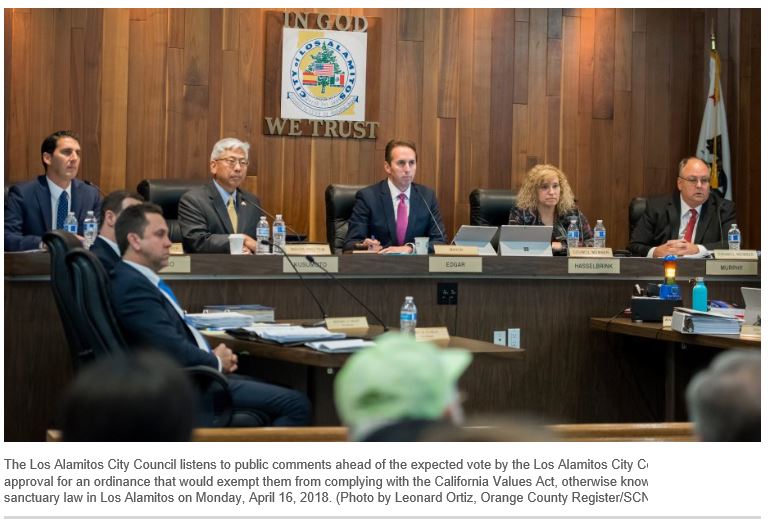
President Donald Trump wants some elected leaders from Southern California who have pushed against the state’s sanctuary laws to come to the White House to talk about immigration.
To that end, he’s invited Los Alamitos Mayor Troy Edgar, Councilman Warren Kusumoto and Orange County Supervisor Michelle Steel to a meeting at the White House next Wednesday. The three are part of a group of officials invited to sit down with Trump for a talk about a growing anti-sanctuary pushback among cities and counties in the state.
“Warren and I are very honored to get this invitation. It’s incredible to have this opportunity,” Edgar said Friday.
“The president asked us to provide stories and an update on what’s going on the ground, and consider suggesting what they can do to help us further,” Edgar said.
Los Alamitos’ recent vote to exempt itself from the California Values Act, which limits cooperation between local and state law enforcement with federal immigration officials, launched a broader anti-sanctuary movement. Elected officials in more than 35 cities and counties have voted to oppose the law since Los Alamitos’ initial action March 19.
Also attending will be Escondido Mayor Sam Abed and San Diego County Board of Supervisors Chairwoman Kristin Gaspar, among others, Edgar said.
Steel, who introduced an anti-sanctuary resolution on the county level within days of Los Alamitos’ action, was the only elected official to greet Trump when he arrived at Los Angeles International Airport in March.
“It was a great privilege to be invited to meet with President Trump to discuss the danger these ‘sanctuary’ laws create in our communities and I look forward to an open and proactive discussion,” she wrote in an e-mail.
A confirmation of the meeting was sent to elected leaders on Thursday. A White House official wrote that the president “is excited to hear your story and get your perspective.” The California group will be joined by Cabinet and senior White House officials in the West Wing, including U.S. Attorney General Jeff Sessions, Edgar said.
As mayor of Orange County’s second smallest city, Edgar said he’s hoping the federal government will intervene in a lawsuit filed by the American Civil Liberties Union of Southern California. The ACLU alleges the city’s new ordinance violates state law and is a waste of taxpayer dollars.
The lawsuit could cost Los Alamitos – population 11,700 – as much as half a million dollars, Edgar and others have said. A GoFundMe “Mayor Edgar’s Stop Sanctuary Law” page, which aims to raise $100,000, netted almost $22,000 from 290 donors as of Friday.
A number of cities and counties opposed the SB-54 bill, written by state Sen. Kevin de León, while it was under consideration last year. After it became law this year, Los Alamitos was the first and only city to pass an ordinance saying it would opt-out, arguing that the state law is an attempt to override the federal government’s authority on immigration matters.
The Orange County Board of Supervisors soon followed by saying it would join a federal lawsuit against California for three new laws to protect unauthorized immigrants. The city of Huntington Beach, better known for its surf culture, voted in April to file is own lawsuit against California.
President Trump, pleased that some in liberal California don’t agree with Democrat-controlled Sacramento, shared his enthusiasm on Twitter.
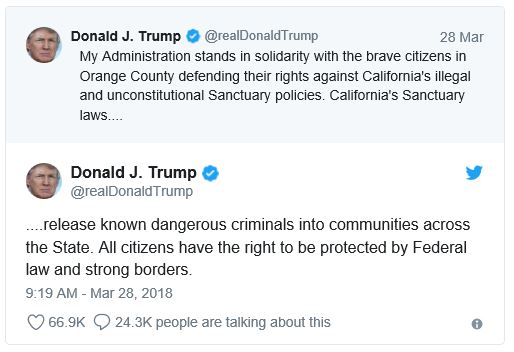
At least one anti-sanctuary Tweet was widely criticized, though, for the president’s use of the word “breeding,” seen by some as racist and a disparaging remark toward Latinos.
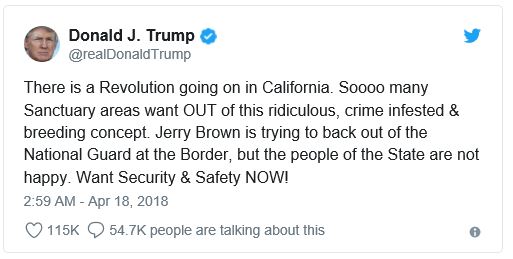
More than 35 other jurisdictions followed Los Alamitos’ vote with their own actions, mostly in the form of resolutions and some by filing amicus briefs with the federal lawsuit against the state. They include San Diego County and Newport Beach.
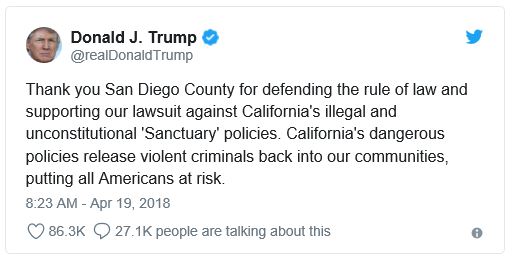
The latest to oppose sanctuary policies include cities of Santa Clarita in Los Angeles County and San Jacinto in Riverside County and the counties of Butte and Mariposa.
So-called sanctuary laws, such as California’s law to limit when local police notify federal immigration agents about people in custody who are potentially deportable, are creating disparities across the nation on who is arrested or deported, according to a newly released report by the Migration Policy Institute, a think tank in Washington D.C. that studies migration and refugee issues.
“(The) unevenness in the enforcement landscape threatens a core principle of the U.S. constitutional system—federal pre-eminence in immigration—with severe implications for effective law enforcement relationships and public safety,” according to the report released Tuesday.
The law specifically mentioned in many anti-sanctuary ordinances, SB-54, has been controversial from the get-go. And during the election season, many politicians and wanna-be politicos are making sure to let their prospective constituents know where they stand, pro or con, on the issue.
Edgar, of Los Alamitos, said he is hopeful that this latest move, an invitation to the White House, will lead to more cities “to get on board and send a message to Sacramento and Gov. Brown that they’ve overstepped their bounds regading the Constitution.”

Sanctuary Opt-Out Update - Update #9
May 11, 2018

Sanctuary Opt-Out Update - Update #8
May 03, 2018

Sanctuary Opt-Out Update - Update #7
April 25, 2018

After Orange County and San Diego County announced opposition, the movement has expanded to more counties. Last year Kern County officially opposed SB54. Sheriff Donny Youngblood announced he wants Kern to be a, “law and order county,” not a sanctuary for criminals. Hopefully, Kern leaders will soon vote to join the Federal suit against California. Siskiyou and Tehama also voted Resolutions opposing the proposed Sanctuary bills. There were discussions in Shasta. To date, we are awaiting formal action from those counties. Riverside and San Bernardino also expect hearings shortly.
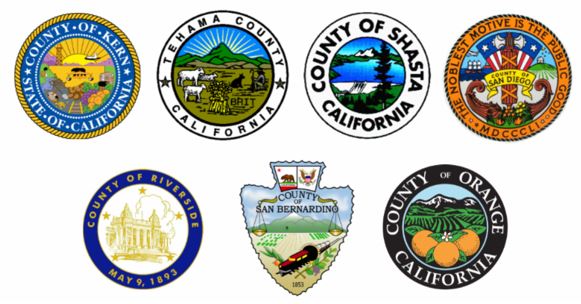
We are looking to Republican leaders in those and other counties to communicate with elected officials to add more weight to the Federal suit.
Is your county listed above?


Laguna Niguel “opts out” April 17, unanimous vote.
Mayor Elaine Gennaway: "We support the police and the rule of law. We welcome immigrants of every race and creed...we will not take away our local police officers’ ability to work...with other law enforcement agencies to...protect public safety."
“ Upland -- will file brief supporting the lawsuit against California’s Sanctuary State law.”
Upland is now working with the state suit filed by Huntington Beach against Governor Brown. This is another bold strategy attacking the Sanctuary laws. Mayor Debbie Stone stated, “ I believe our police force needs our support more than ever.”
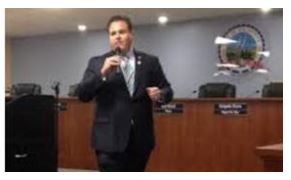
Wildomar leaders oppose state’s sanctuary law.
Mayor Ben Benoit announced that Wildomar will, "work with the Riverside County Sheriff’s Department to keep residents safe." The vote was unanimous.

Villa Park votes to oppose the Sanctuary State and may consider more legal actions next meeting.
Resident and former mayor of Monterey Park Betty Chu voiced her opposition to the Villa Park City Council. Betty reports that the city attorney will explore legal actions and report in two weeks.
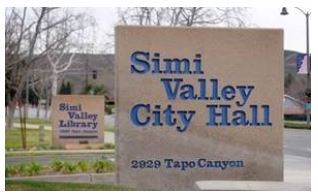
Simi Valley becomes first city in Ventura County to oppose California's Sanctuary State laws
"I'm reporting that the City Council has approved by a unanimous vote the filing of an amicus letter by the city of Simi Valley in support of the United States in the case entitled United States of America vs. State of California, et al... to join enforcement of certain provisions of California law enacted through Assembly Bill 450, Assembly Bill 103 and Senate Bill 54," Eldridge said.
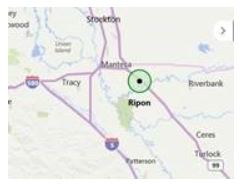
Ripon wading into Sanctuary City fight.
Now, therefore, be it resolved as follows:
1. That the City Council of the City of Ripon hereby urges the California Legislature and the Governor of the State of California to recognize that illegal immigration and immigration policy in general is primarily and constitutionally a Federal matter.
2. That in view of the inconsistency between the California Values Act and existing federal law, the City Council will comply with federal law.
3. That the City Attorney is authorized to join in amicus curiae briefs in support of the Federal government’s legal challenge to the California Values Act.”
First city in San Joaquin County to join the struggle.
Yucaipa opposes California’s Sanctuary State law.
City leaders voted, 4-1, to draft a letter of opposition to Senate Bill 54, the California Values Act, after hearing from 48 speakers over 90 minutes of public comment.
Lake Elsinore unanimously vote against criminal illegal aliens.
Nico Melendez addressing the City of Lake Elsinore Council Meeting on behalf of Assembly Member Melissa Melendez urging the Council to vote "NO SANCTUARY" for convicted criminals here illegally and to officially to OPPOSE SB 54. They did unanimously!
Lake Elsinore unanimously vote against criminal illegal aliens.
Nathan Miller, former California Young Republican Chair, is helping coordinate hundreds of citizens to mobilize city councils to vigorously oppose California’s pro criminal illegal Sanctuary laws. You can see what he is doing at the CRP Convention May 4-6, 2018 in San Diego.

Sanctuary Opt-Out Update - Update #6
April 18, 2018
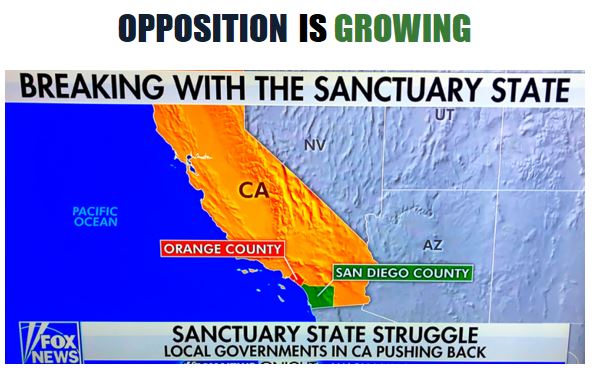
San Diego County becomes the latest to fight California Sanctuary State laws
The San Diego County Board of Supervisors voted 3-1 Tuesday to support the Trump administration's lawsuit against California over so-called sanctuary laws that the state passed last year to limit its role in immigration enforcement.
"We're talking about people who are crossing the border illegally, coming into this county and committing a crime and them being let loose probably to commit another crime," said Dianne Jacob , Supervisor for the district that covers East County. "That creates a public-safety issue and creates a problem in our neighborhoods.” The population in San Diego County is 3.3 million.
Beaumont joins the fight against California’s criminal protection Sanctuary laws. "This is not about illegals versus legal...this is about criminals and about the rule of law," said Beaumont City Councilman Lloyd White — who drafted the resolution that the council approved Tuesday night after nearly three hours of discussion and comments on the issue.

Dana Point supports county, growing group of cities opposing California’s Sanctuary law.
The City Council on Tuesday, April 17, voted 3-2 to support the resolution. Council members Debra Lewis and Paul Wyatt were opposed, saying the issue is divisive to the community, could be costly and is mostly symbolic. Note the two “no” votes are democrats. Lesson? Don’t vote for democrats for ‘non-partisan’ offices.
Councilwoman Debra Lewis countered claims the state’s Sanctuary law keeps local police from working with Federal officials, citing numbers given to her from the Sheriff’s Department.
“In 2016, OCSD turned over 391 inmates to ICE,” she said. “From January to March 2018, 168 have been turned over so far. We’re on a pace to be over 600. This is after the passage of SB-54.”
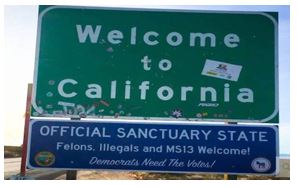 More cities and counties are putting this issue on their agendas. Is your city ready to vote against allowing criminal aliens to be released into your community?
The List:
Counties and Cities that officially oppose illegal Sanctuary laws
Orange County
San Diego County
Cities
Los Alamitos
Anderson
Huntington Beach
Newport Beach
Escondido
Yorba Linda
Barstow
Orange
Fountain Valley
Hesperia
Westminster
Mission Viejo
San Juan Capistrano
Aliso Viejo
Beaumont
Dana Point
More Cities and Counties are putting this issue on their agendas – Is your city ready to vote against allowing criminal aliens to be released into your community?
@ Buena Park Councilwoman Beth Swift said she will follow the lead as well and will request a discussion on the measure at the next council meeting.
@ Riverside County may be considering soon.
@ Fresno County up for discussion.
Cities planning to vote: San Marcos, San Dimas, El Cajon, Coronado, La Mesa, Santee and Vista. When will your city/county step up?
OUR GOAL IS TO GET 100 CITIES AND 20 COUNTIES ON BOARD BY JUNE 2018

Sanctuary Opt-Out Update - Update #5
April 16, 2018

The State of Jefferson – 10 counties united against Sacramento. 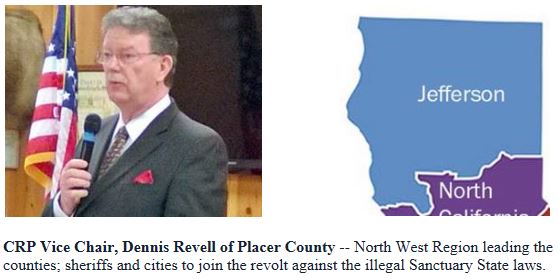
Richard Marshall, Chairman of Siskiyou County is reaching all public officials in the area.

So far Tehama and Siskiyou Counties along with the City of Anderson have passed Resolutions opposing the Sanctuary State laws in October 2017. Tehama County Supervisor Bob Williams stated that Brown’s Sanctuary law was, “little more than another piece of ‘Resist Trump’ legislation …"
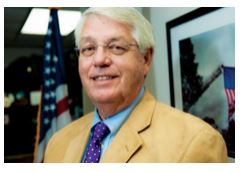 Anderson Mayor Baron Browning
Anderson Mayor Baron Browning introduced his city’s Anti-Sanctuary Resolution last Fall hoping Federal officials would take note. Good work! Now Anderson sets the standard for all cities in the North.
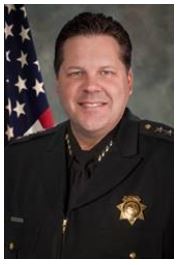 Contra County Sheriff David Livingston
Contra County Sheriff David Livingston announced on March 30 that his office has begun to publish inmates’ release dates online in what pro-sanctuary critics claim is an attempt to avoid the illegal California Sanctuary laws.
The sheriff’s office stated it was their practice in response to a request from organizations that assist with inmate reentry. Sheriff Livingston is a Decline to State voter.
Department of Homeland Security says cities hid 142 suspected gang members from deportation.
“City and county governments ignored Federal ‘detainer’ requests and released 142 suspect members of MS-13 and other criminal gangs in the 8 months up to June 2017," says a report from the Department of Homeland Security to the Senate’s Judiciary committee.
Orange County Sheriff Sandra Hutchens announced her office is now publishing the names of all soon to be released prisoners. She noted that some 172 criminal illegal aliens were released from Orange County since January to March 1, 2018. Her new policy will now give vital information to ICE to detain criminals and deport them.

Sanctuary Opt-Out Update - Update #4
April 12, 2018

Westminster joined the resistance last night.
Led by Councilman Tyler Diep, the city council took on Senate President Pro Temp Kevin de Leon -- the original proponent for criminal illegal aliens -- who personally showed up.
Westminster is the first majority minority city to oppose California sanctuary.
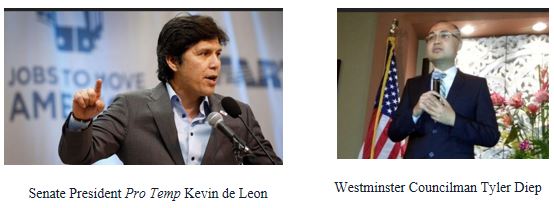
CRP Vice Chairs take action working with local cities and counties.
CRP Southern California Vice Chair John O’Hara will host the Regional Caucus at the CRP convention, a special discussion about challenging the Sanctuary State.

Sanctuary Opt-Out Update - Update #3
April 11, 2018
Newport Beach voted unanimously last night to oppose the Sanctuary State. Councilman Scott Peotter helped lead all 7 members to file an amicus brief supporting the Federal suit against California.
City of Orange also voted last night to oppose the Sanctuary State. Fred Whitaker, OC GOP Chair also sits on the City Council.
https://www.ocregister.com/2018/04/11/orange-newport-beach-join-other-orange-county-cities-opposing-california-sanctuary-law/
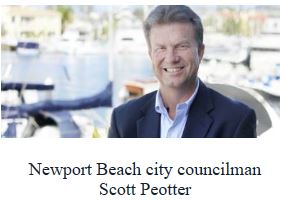 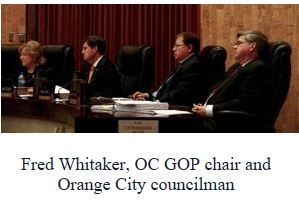
Fountain Valley joined April 9, 2018 in the opposition, favoring to file an amicus brief in support of the lawsuit filed by the U.S. Department of Justice against the California law.
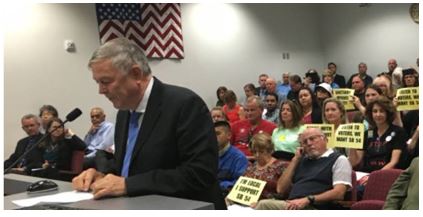
Congressman Dana Rohrabacher, leader against the illegal sanctuary state laws, speaks to Fountain Valley City Council, which voted April 9, 2018 to join the resistance.
https://www.ocregister.com/2018/04/04/fountain-valley-enters-sanctuary-city-fray-after-rohrabacher-offers-to-pay-legal-costs/
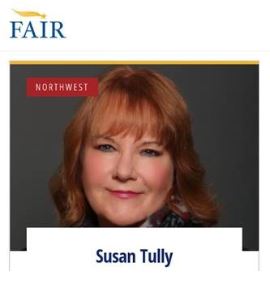
Susan Tully works for FAIR full time helping local cities and counties work to support the Federal government immigration policies. FAIR believes that California sanctuary state laws are illegal. Preventing ICE agents from working with local police to help deport imprisoned criminal illegal aliens creates massive safety problems for California citizens. You may contact Susan at tullys@fair.org.
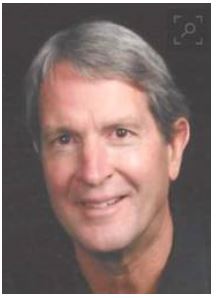
Fresno County Chair Fred Vanderhoof is calling all county CRP Chairs to work with local supervisors and city council people to support Federal immigration laws. Fred is urging CRP Members to hold caucuses at the upcoming CRP Convention to discuss ways to assist ICE and Federal law.
http://www.fresnogop.org/

Sanctuary Opt-Out Update - Update #2
April 05, 2018
Dear Colleagues:
Today more news to report opposing the illegal Sanctuary state laws.
Escondido voted last night to opt out and file a federal amicus brief with the Trump Administration. Vote was 4-1 lead by Middle East immigrant Mayor Sam Abel.
https://www.msn.com/en-us/news/us/escondido-votes-to-support-trump-administration-lawsuit-against-californias-sanctuary-laws/ar-AAvw70V
As of Tuesday, those joining the amicus brief included the cities of Hesperia, Mission Viejo, Yorba Linda, Aliso Viejo, Huntington Beach is suing the state and Los Alamitos passed an ordinance opposing the Sanctuary law.
Newport Beach has this item on its agenda for next Tuesday.
We would like to know if this matter is on your city’s agenda.
After Orange County passed instructions to its attorneys to file an amicus brief, San Diego and Riverside Counties may soon follow.
There are multiple counties in the north and central valley. We are seeking information if the illegal Sanctuary laws are on their agendas. Moreover, the “State of Jefferson” counties in the far north have voiced opposition to the Sanctuary laws in the past. We are hopeful that we can get new reports from county chairs as to progress made in each of these counties.
For research, information and help you can contact Susan Tully at FAIR [ Federation for American Immigration Reform] at (202)328-7004

Sanctuary Opt-Out Update - Update #1
April 03, 2018

The Conservative Movement: Agony, Revolution, and Triumph
March 01, 2018
By Shawn Steel
A NATIONAL POLL TAKEN SHORTLY after Donald Trump’s victory found that 85 percent of Americans believe that the country is more divided than in recent years — this, before the Women’s March on Washington, DC, the appointment of a special prosecutor, Charlottesville, Alabama’s US Senate special election, and the landmark Tax Cuts and Jobs Act. The narrative is inescapable — whether you come from the right, left, or center.
Something about the current division seems greater — more irreconcilable — than any recent past disruption in American unity. Blame the other side. Attribute it to media echo chambers and social media silos. But none of that gets us any closer to closing the gap between “I’m with her” and “lock her up.”
“It’s a sign of the times, but one of the things I’m struck by,” FiveThirtyEight contributor Dan Hopkins, an associate professor of government at the University of Pennsylvania, observed of Alabama voters, is “the disconnect between the unfailing kindness people showed to me personally while they were filling out the survey and the harsh, sometimes unprintable words they had for the other party and its candidate.”
Arnie Steinberg’s name doesn’t stand out as a conservative icon. But, among those big-name, recognizable political players, Arnie’s is the name to drop.
Over his lifetime, he has been counted as a close, personal friend of legendary members of every facet of the vast rightwing conspiracy: from theorists Milton Friedman and William F. Buckley Jr. to firebrand conservative politicians Barry Goldwater Jr. and Dana Rohrabacher. He helped advise some of the last true statesmen, US Senator James Buckley and Los Angeles Mayor Richard Riordan, and tried — unsuccessfully — to steer actors like Clint Eastwood from making the plunge into politics.
In Whiplash! From JFK to Donald Trump, a Political Odyssey, Steinberg shares the story of his life — a Jewish kid from Fairfax who became a giant in the political intellectual community. He takes readers through the agony, revolution, and triumph of a political movement.
Steinberg and I met as teenage Republican activists. He was mobilizing kids at Fairfax High School while I was doing the same at Van Nuys High. Most of his life, Steinberg’s business card has read “strategist,” which doesn’t fully convey the extent of his influence shaping nearly every component of the modern political campaign. He’s conducted more than 1,600 focus groups and surveys, authored two graduate-level textbooks, and testified as an expert witness in high-profile trials, including the trial of the Los Angeles police officers who beat Rodney King.
“Steinberg’s life experiences growing up in the Los Angeles area produced an understanding that led to a developed conservative philosophy that is spelled out in his book,” writes author Wayne Thorburn. “It is a tour de force for those who wish to better understand how the conservative movement developed and where it is at the present time.”
Arnie’s resume alone is sufficient to make his lengthy memoir compelling. Joe Mathews, a former Los Angeles Times reporter and now California editor at Zócalo Public Square, complained that he couldn’t review Arnie’s book because he “didn’t write one book. He wrote 10 books, and stuffed it into one.” The book is to be appreciated even for those who, in Mathews’s words, find “the Trumpian sympathies he expresses revolting.”
Conservative readers will immediately appreciate the inside baseball of how Steinberg skillfully guided GOP campaigns in what are now considered hopelessly blue coastal states. Angelenos get a meticulous account of the city’s dramatic political and demographic evolution over the last half-century. Far-left Democrats will relish at Steinberg’s internal struggle over helping some politicians: “After electing Bob, I would ask myself: did I create a Frankenstein?”
He offers lessons in loyalty. When Dana Rohrabacher jumped in as a late entrant to a race for Congress, Arnie had already been retained by one of Dana’s opponent. Without being asked, Arnie returned the $50,000 retainer paid in 1988 dollars. Dana believes that action was the single biggest factor that led to his first win.
If all that Steinberg’s book achieved was an honest telling of the inside story of 50 years of political campaigns, it would be worth the read. Arnie’s side stories and special attention to the relationships he developed over the years are fascinating mini-stories in themselves. However, the true value of Arnie’s brutally frank and candid tone is that it offers deep insight into the principled conservative worldview and a chance for a constructive way past our political stasis.
“I started political action circa 1960 with John Kennedy; and now we are in the twenty-first century with Donald Trump,” Steinberg writes. “Given the parallels between then and now, and a generation fighting the same battles, I feel as if I’ve been whiplashed by a time warp.”
Are there two more incongruous political figures than elegant Democrat John F. Kennedy and unpolished Republican Donald Trump? That the same person can draw lines over a lifetime between these two polar-opposite political figures makes Arnie Steinberg’s memoir truly thought provoking. On those issues of greatest division — Black Lives Matter, immigration, and social justice reform — Steinberg’s philosophy should stop and make progressives think.
When millionaire San Francisco 49ers quarterback Colin Kaepernick first knelt during the national anthem, he did so in the name of protesting systemic abuse of power by law enforcement and prosecutors within the US justice system. He may have grandstanded, but he put a spotlight on the deep wounds in our criminal justice system.
“In our judicial system, it’s not whether you are guilty, but how the legal process is pursued.” That’s the Jewish Republican political strategist’s words, not the African-American football player’s.
“Our criminal justice system is anything but conservative; it is completely broken,” Steinberg adds. “Government fails to effectively perform its classic and basic functions of protection and justice; we have too many laws, and selective enforcement breeds disrespect for the law.”
In Whiplash!, Steinberg artfully describes why every American should be concerned by prosecutorial misconduct. When prosecutors weaponize their power, no one is safe. Steinberg’s libertarian distrust of government has been accentuated by the prosecution of his friends and clients, in particular Congresswoman Bobbi Fiedler and Assembly Republican Leader Pat Nolan, as well as his own near-bankruptcy-inducing fight with the California Coastal Commission.
“A Soviet-style LA County prosecutor in 1986 went after my client, Congresswoman Bobbi Fiedler, for a nonexistent crime, the case was thrown out of court, but Bobbi’s political career ended, and Democrat Alan Cranston reelected,” Steinberg shares.
What many limited-government conservatives have forgotten is that the innocent are often destroyed by fighting the charges. It can take everything you have to defend yourself from the limitless purse of a government prosecutor.
“I was close to many top law enforcement officials and believed many cops had a tough job,” he writes. “But some in law enforcement failed to understand that ordered liberty required a minimum, not a maximum, of order.”
When Assembly Republican Leader Pat Nolan was prosecuted in the mid-1990s, the US Attorney was able to pressure a staff member to testify against Nolan. He was presented with the option of 24 months in jail or taking a chance at trial, which could mean “you will not see your three children graduate from high school.”
The playbook for headhunting prosecutors has remained unchanged because it has gone unchallenged. Apply the pressure to family members or underlings with little power and minimal resources. Go for the big headlines and convict in the press. Search for any leverage even if on unrelated charges. Offer the deal.
We’ve traded truth and justice with a game of “let’s make a deal.” General Michael Flynn recently agreed to accept a felony plea to the charge of lying to the FBI, despite sworn testimony from the former FBI director that he believed the general didn’t lie to the FBI. Did Flynn cut a deal simply to avoid an expensive legal battle? More importantly, if this judicial deal-making can happen to a former general turned national security advisor, it can happen to anyone who runs afoul of law enforcement, especially those at the margins who may lack money, power, or influence.
While Republicans will draw parallels to Robert Mueller’s pending investigation, Steinberg connects his experiences with the clear racial inequities associated with the justice system. “I gained new sympathy for the underclass in America, and the way in which many poor defendants are railroaded into plea bargains,” Steinberg confesses. “The United States has roughly 5 percent of the world’s population but nearly one-quarter of its prisoners. The prison population is disproportionately African-American and Latino.”
He admonishes law-and-order Republicans that “[c]onservatives must continue to pursue futurist issues, such as the movement to reform and overhaul the broken criminal justice system,” stating that, “[p]eople who smoke cigarettes, drink alcohol, use marijuana, or even partake of hard drugs should not be criminals. If someone drinks and drives, that’s another matter. But to criminalize vices is contrary to conservatism.”
Progressives can hardly claim moral superiority on criminal justice reform, a point that’s not lost on Steinberg. “As government — largely as a result of the progressives — criminalizes more and more of what we do and how we act and even what we say, what do all the laws and regulations and court decisions produce?”
I have often wondered why Steinberg didn’t join a giant DC public relations firm to make a lot of money, as many of his contemporaries did. He was always far more interested in big ideas than making money or manipulating power.
“In politics, many conservatives are caught up in who wins or loses a particular election,” Steinberg writes. “First, they simply are too involved in the political process, when the real battle relates to philosophy, values, ethos, culture, ideas, and policy, and young people and education.”
This is no doubt the indelible mark left by Steinberg’s first big campaign: James Buckley’s improbable victory as a third-party candidate for US Senate in New York. He learned from his Buckley days that the biggest donors and the most influential lobbyists always serve the interests of the crony class, which demands preferences, set asides, loopholes, and access.
“We believed in ideas and the candidate, we were not looking for power or patronage,” Steinberg recalls in the book.
Arnie’s big campaign innovation was to connect a candidate’s schedule to the nightly news. As one of Buckley’s campaign advisors, he coupled the daily schedule with the news cycle. If there was a controversy in the Bronx, Buckley showed up. As a third-party candidate, Buckley received substantially more earned media that his two opponents. This seems obvious today — only because Arnie made it obvious.
Another once-obvious observation: The seemingly incongruous truth that principled ideological differences often breed political civility. Arnie was struck that Buckley was one of the most affable people he’d ever met, all while staying disciplined to his core principles and values.
“Many conservative candidates could have learned from Jim’s affable style: he would not seek a confrontation, and he could take a hard-line stance with cordiality. He smiled easily, spoke softly, and did not seem angry … because he was not angry.”
Marcus Aurelius long ago reminded us, “How much more grievous are the consequences of anger than the causes of it.”
“Americans are more divided than ever, gridlocked over social issues, race, gender and the economy,” the Associated Press proclaims in its “Divided America” multimedia series. “Bathrooms have become battlefields, borders are battle lines. Sex and race, faith and ethnicity […] the melting pot seems to be boiling over.”
All of this feels true, yet none of it is true — not by a long shot.
In my lifetime, each of these metaphors has been acted out in a real way. Bathrooms, bus seats, and lunch counters were battlefields a half-century ago, and sitting at the wrong one could get you beat up, attacked by dogs, or assaulted with a fire hose. Real battlefields. Twenty-five years ago, the Los Angeles melting pot boiled over — with violent riots that destroyed the life savings of largely Korean-American small business owners. Real fires. Have we forgotten that armed bands of Minuteman militias drew battle lines along the border just a decade ago? Real trenches.
“In any dispute,” Sayre’s law posits, “the intensity of feeling is inversely proportional to the value of the issues at stake.”
If the United States seems more deeply divided than ever before, it might just be because we aren’t.

Four Injured in Campus Riot Over Milo Yiannopoulos Speech Sue Berkeley, UC Berkeley
January 16, 2018
By Olga R. Rodriguez
Four San Francisco Bay Area residents who say they were injured by protesters during a riot ahead of a speech by a right-wing provocateur at the University of California, Berkeley filed a lawsuit against the university and the city, their attorneys said Tuesday.
The plaintiffs say in the suit filed Thursday in federal court in Oakland that officials failed to protect them from being pepper-sprayed and beaten when they were trying to attend a Feb. 1 speech by Milo Yiannopoulos, a conservative commentator. They are seeking unspecified damages.
John Jennings, his wife Katrina Redelsheimer and their friend Trever Hatch, all of San Francisco, say they were at UC Berkeley's Sproul Plaza trying to verify the event had been canceled when a masked protester struck Jennings in the right temple with a wooden stick.
When Redelsheimer tried to help her husband, a group of protesters hit her in the head with a stick and pepper-sprayed them. The group then pushed Jennings to the ground and kicked him, the lawsuit states.
Both suffered concussions, broken or bruised ribs, cuts, burns and welts on their skin from pepper spray, according to the complaint.
“We were assaulted completely out of the blue based on our perceived political affiliation by an angry mob,” said Redelsheimer, who has since moved out of California.
When the pair tried to escape over the barricades to get inside the MLK Student Center, police wouldn’t let them in, she said.
“The circumstances were such that if the police had done nothing at all, we would have been safer,” Redelsheimer said.
The suit says the masked protesters also knocked off Hatch's "Make America Great Again" red hat and pepper-sprayed him, temporarily blinding him. It says a UC Berkeley employee and a UC Davis staffer were part of the group that assaulted the trio.
The lawsuit alleges that police knew there would be trouble and didn't do enough to protect innocent bystanders.
“University officials forced college republicans to rent 60 extra policemen so they obviously anticipated a problem,” said attorney Shawn Steel.
Fellow attorney William Becker agreed.
“What you expect is law enforcement to do their job,” he said. “You don't expect to walk into an anarchist riot.”
Plaintiff Donald Fletcher of Oakland says he and some friends had left a bar and were walking toward campus when they were attacked by masked protesters. Fletcher was beaten unconscious, kicked to the ground and taken by ambulance to a hospital, the suit says.
"Fletcher continues to experience the negative psychological effects of the incident," the suit adds.
UC Berkeley police canceled the speech, citing safety concerns after what had been a peaceful demonstration turned violent when dozens of black-clad anarchists attacked some people in the crowd.
UC Berkeley spokesman Dan Mogulof said the university has not seen the suit.
"We have not yet been served with this litigation, and that means our attorneys have not seen the suit,” he said. “So, we cannot comment. Once that happens there will be a statement."
Berkeley spokesman Matthai Chakko said the city had no comment.

Berkeley Sued Over Failure to Protect Yiannopoulous Attendees
January 15, 2018
By Rachel Frommer Four residents of California's Bay Area injured during the violent University of California-Berkeley protests last year of a Milo Yiannopoulous campus appearance filed a lawsuit Thursday, alleging administrators failed to install appropriate security measures to protect attendees from harm. John Jennings, Katrina Redelsheimer, Trever Hatch, and Donald Fletcher allege they were physically attacked by masked rioters as they attempted to attend the Yiannopoulous speech in February 2017, with Berkeley "responsible for creating and exposing the Plaintiffs to the unlawful actions of an angry mob of violent anarchists," according to the complaint, first reported on by the student paper. In addition to the university, the UC Board of Regents; UC President Janet Napolitano; both the current Berkeley chancellor, Carol Christ and the chancellor at the time of the incident, Nicholas Dirks; student affairs administrators; the UC Police Department Chief of Police; the city of Berkeley; and the Berkeley Police Department are also named as defendants. The plaintiffs claim that "given the current political climate," Berkeley should have "foreseen that the protest of a controversial political figure such as Yiannopolous could likely turn violent." Yet, Berkeley did not "plan effectively," according to the suit, nor did police "intervene or employ reasonable tactical methods to ensure the safety of the plaintiffs" while the riots were underway. Officers issued "feckless disbursal orders and empty threats of arrest," according to the complaint, and barricaded areas flooded with protesters, leaving no exit open for plaintiffs and other attendees attempting to escape. Ultimately, black-clad "antifa" demonstrators set university property aflame and looted local establishments, causing an estimated $100,000 in damage. The event was cancelled, but just one arrest was made. Jennings was beaten unconscious, and Redelsheimer and Hatch were "brutally assaulted" with pepper-spray and a flagpole, according to the complaint, which references visual evidence of the assaults, including social media footage of the incidents posted by the attackers. The plaintiffs are being represented by Shawn Steel of the Shawn Steel Law Firm, who serves as chairman of the California Republican National Committee. Steel characterized the clashes on campus between students of differing ideologies as "the Left's Jihad against conservatives," in an email to the Washington Free Beacon. He said he took on the Berkeley case as "I believe it is my duty as an officer of the court and as a free speech absolutist is to defend vulnerable student conservatives." "Universities that cannot protect free speech is a university not worthy of any public support," he added. His clients are seeking compensation for their medical bills, and for security policies to be altered in order to properly protect "attendees of all future political rallies" in the city from rioters' violence. Berkeley spokesperson Dan Mogulof declined to comment Monday as the school had yet to be served with the suit. A UC-San Diego student filed a personal injury and property damage lawsuit against her administration in November 2017, a year after she was hit by a car while protesting the results of the presidential elections on an interstate. Her complaint holds the university, the regents, the city, and the state responsible for not stopping or controlling the student demonstrations in which she chose to participate, claiming they are liable for the injuries she incurred while marching on the freeway
January 01, 2018
|
Articles
2025
2024
2023
2022
2021
2020
2019
2018
2017
2016
2015
2014
2013
2012
2011
2010
2009
2008
2007
2006
2005
2004
2003
2002
2000
1998
1996
|